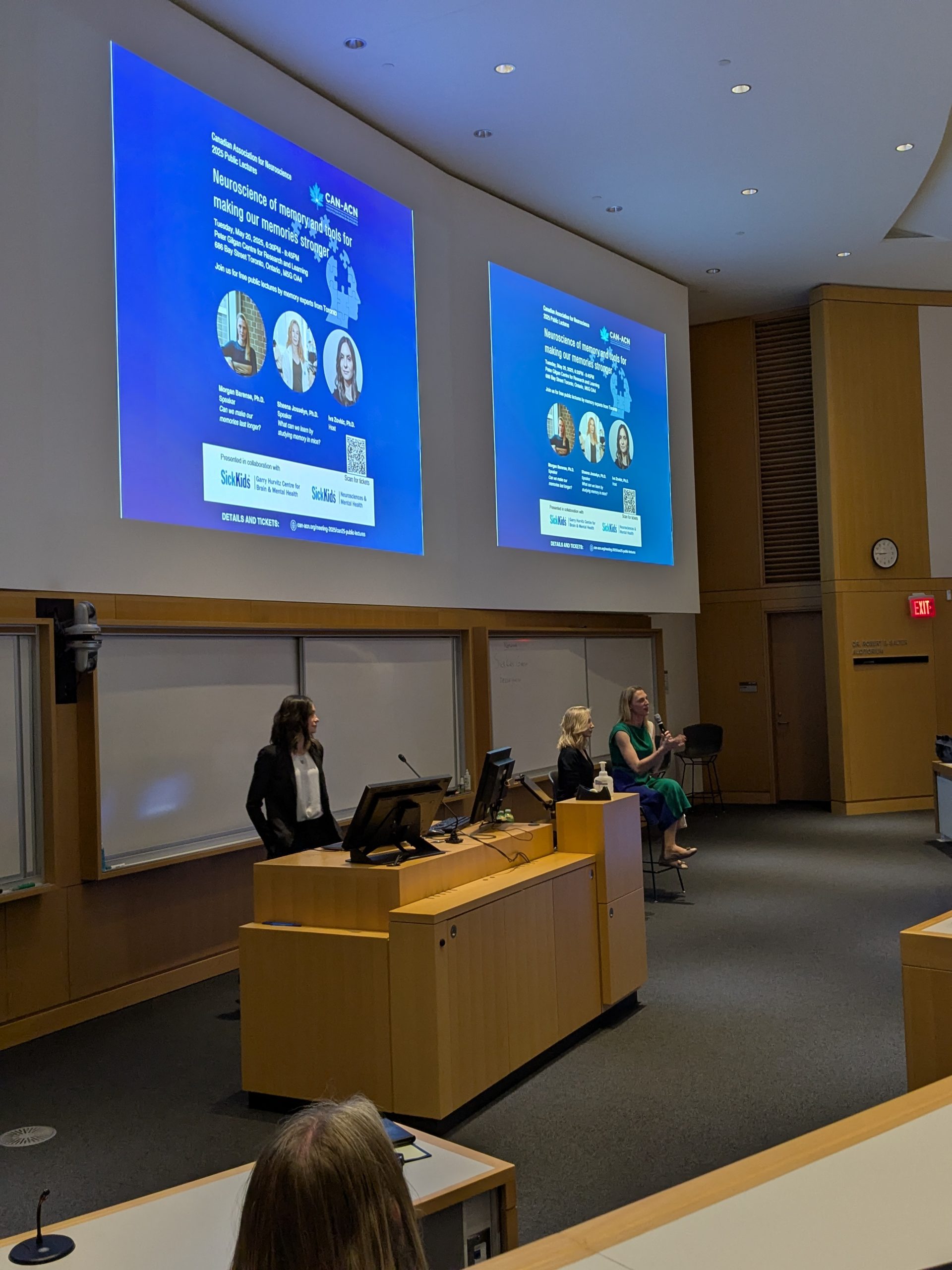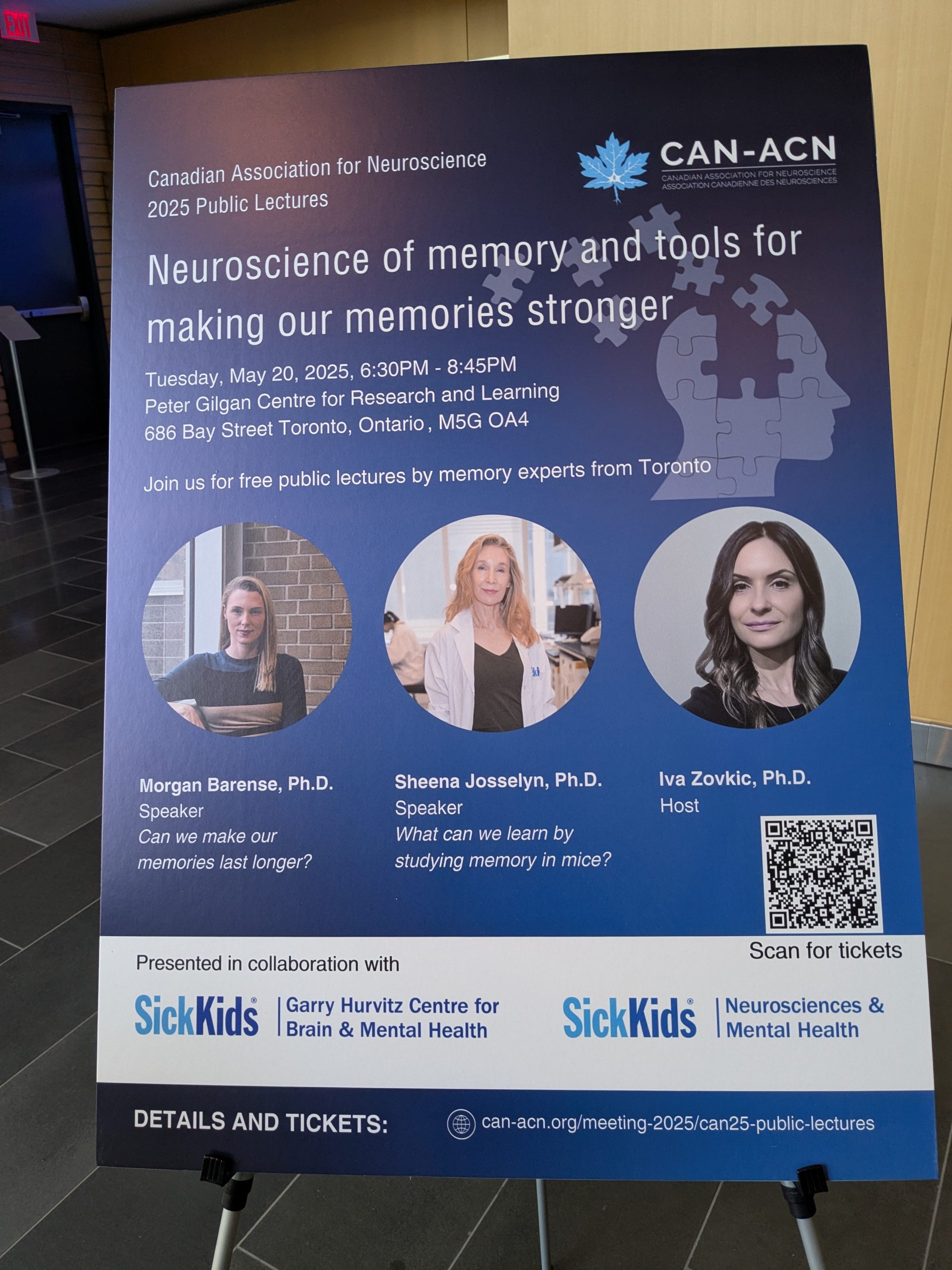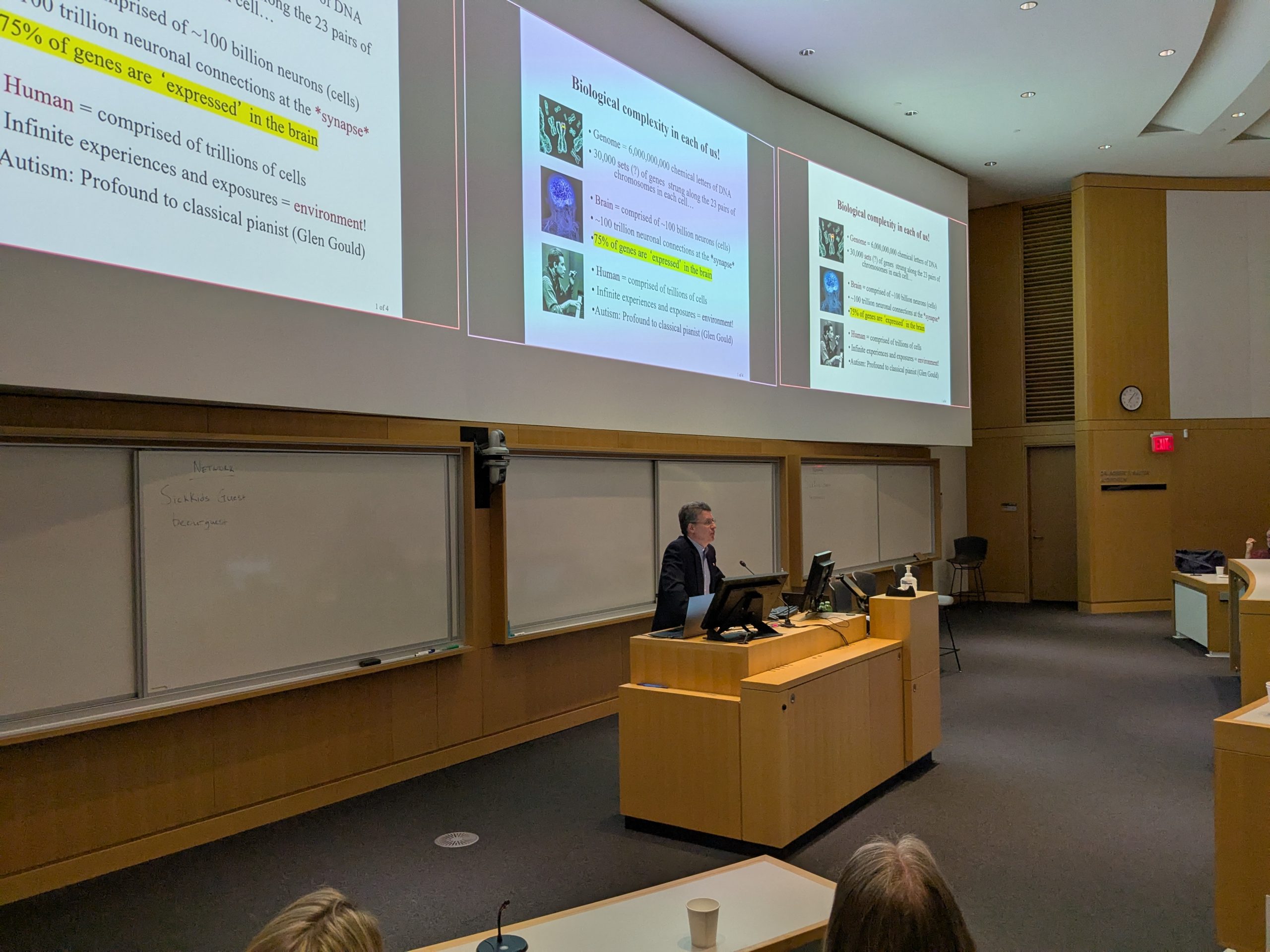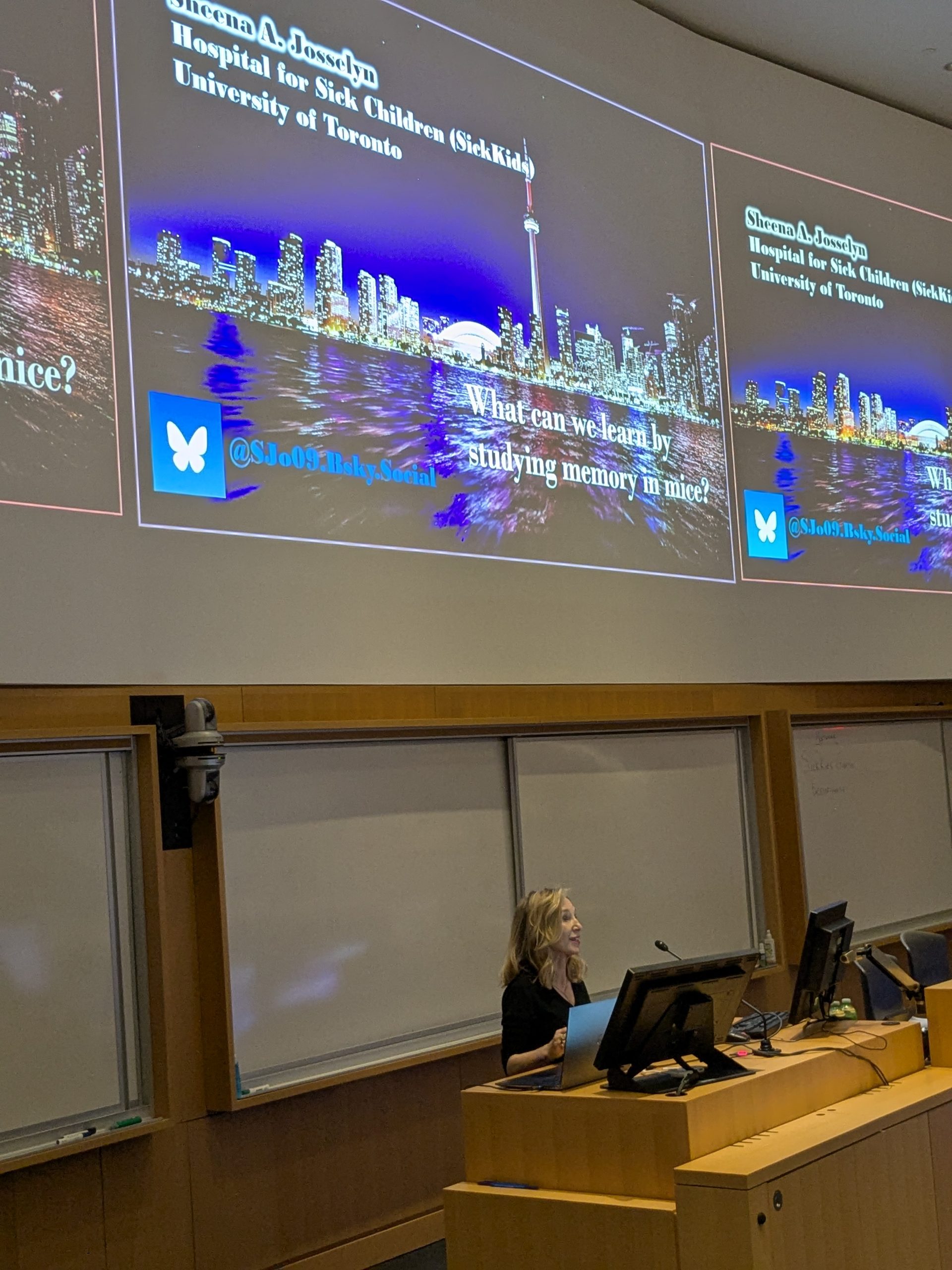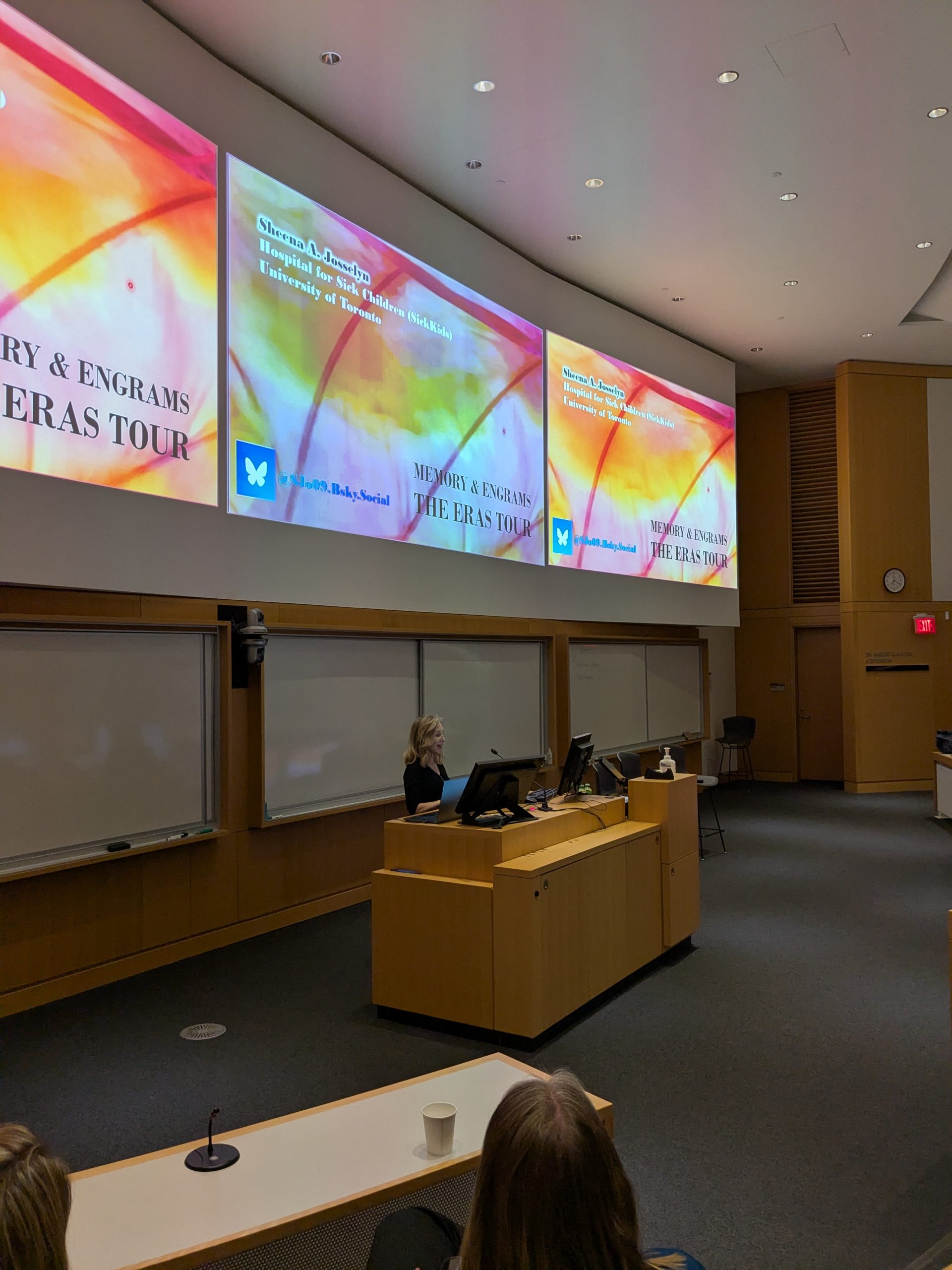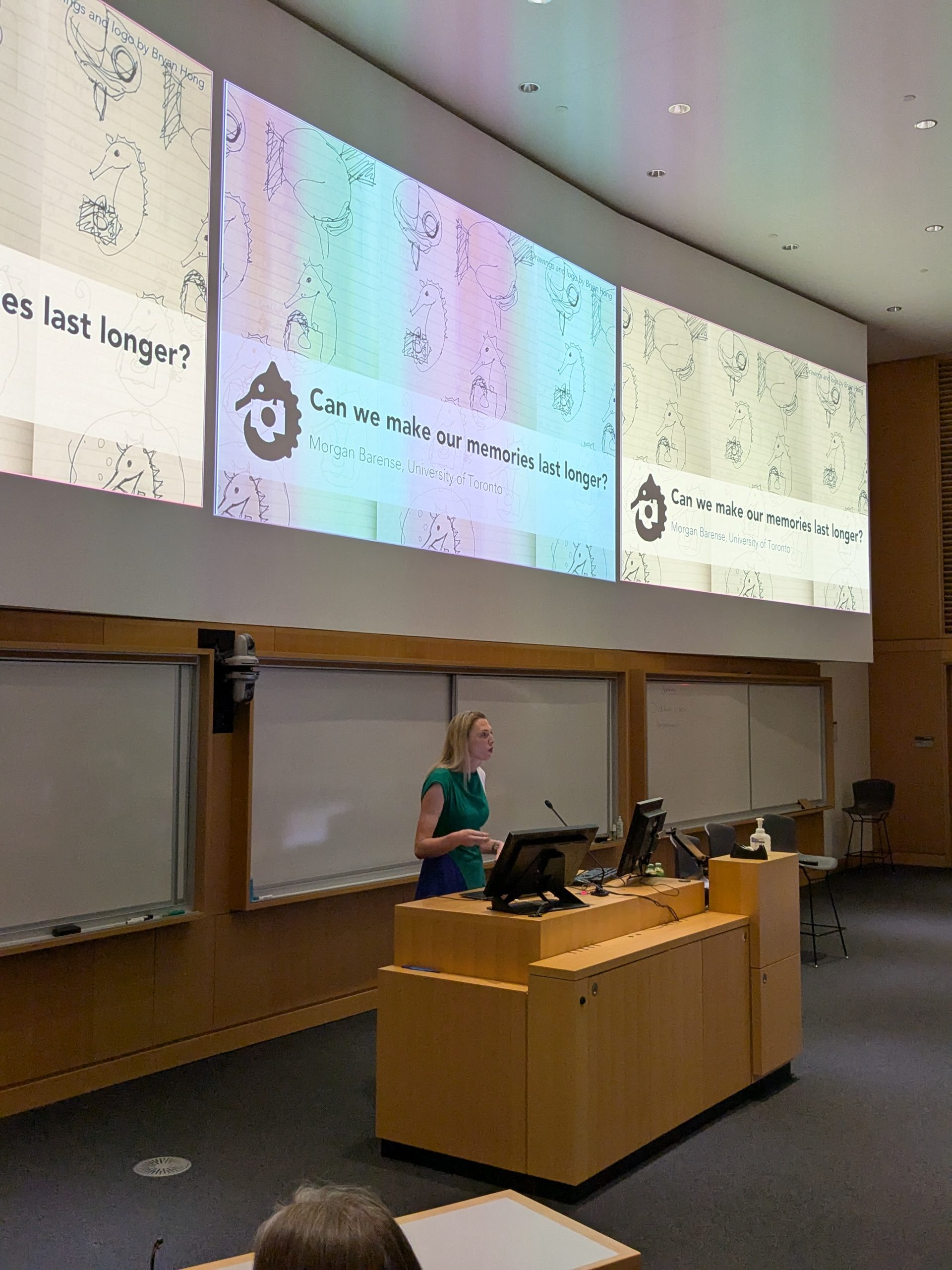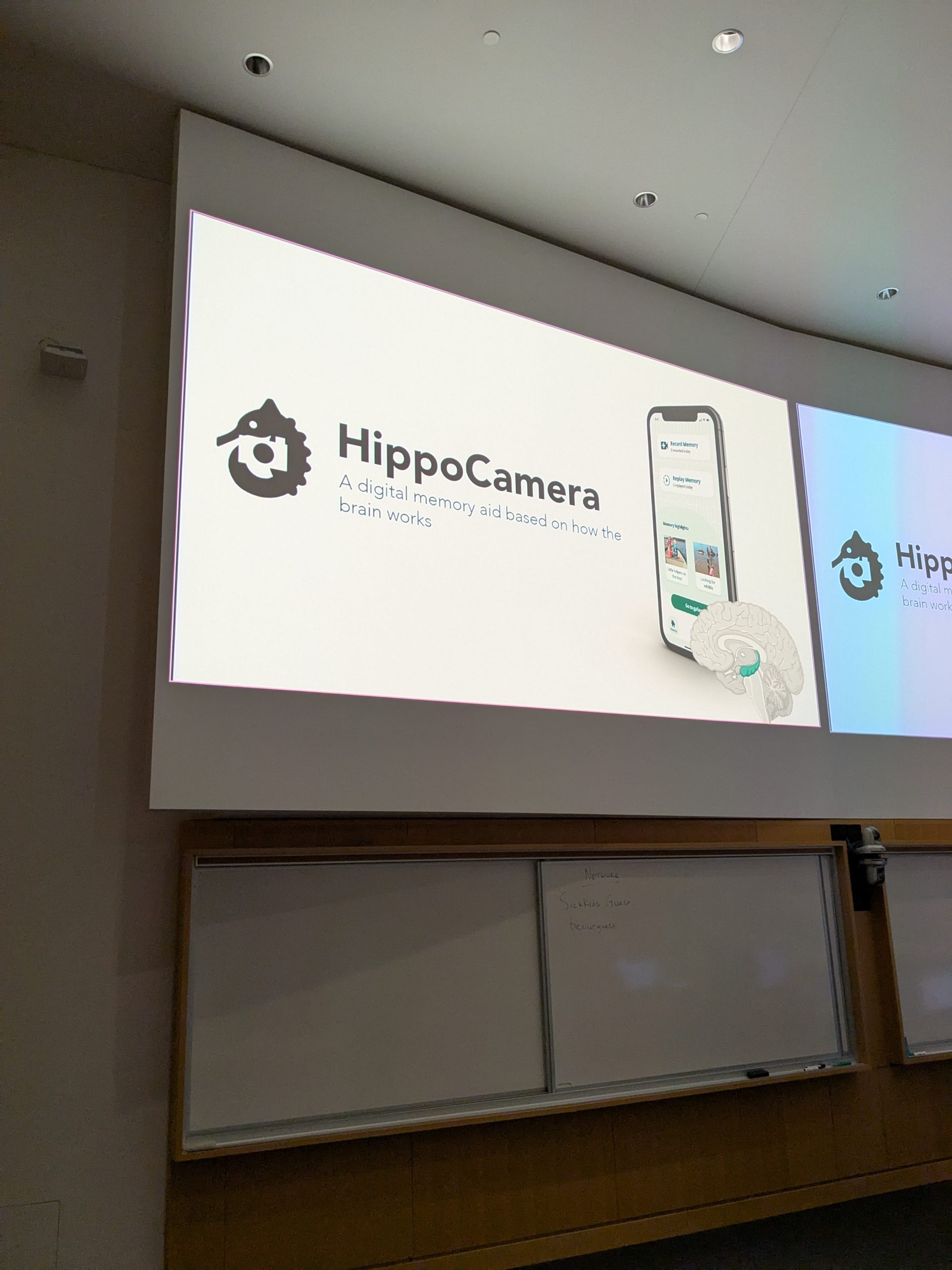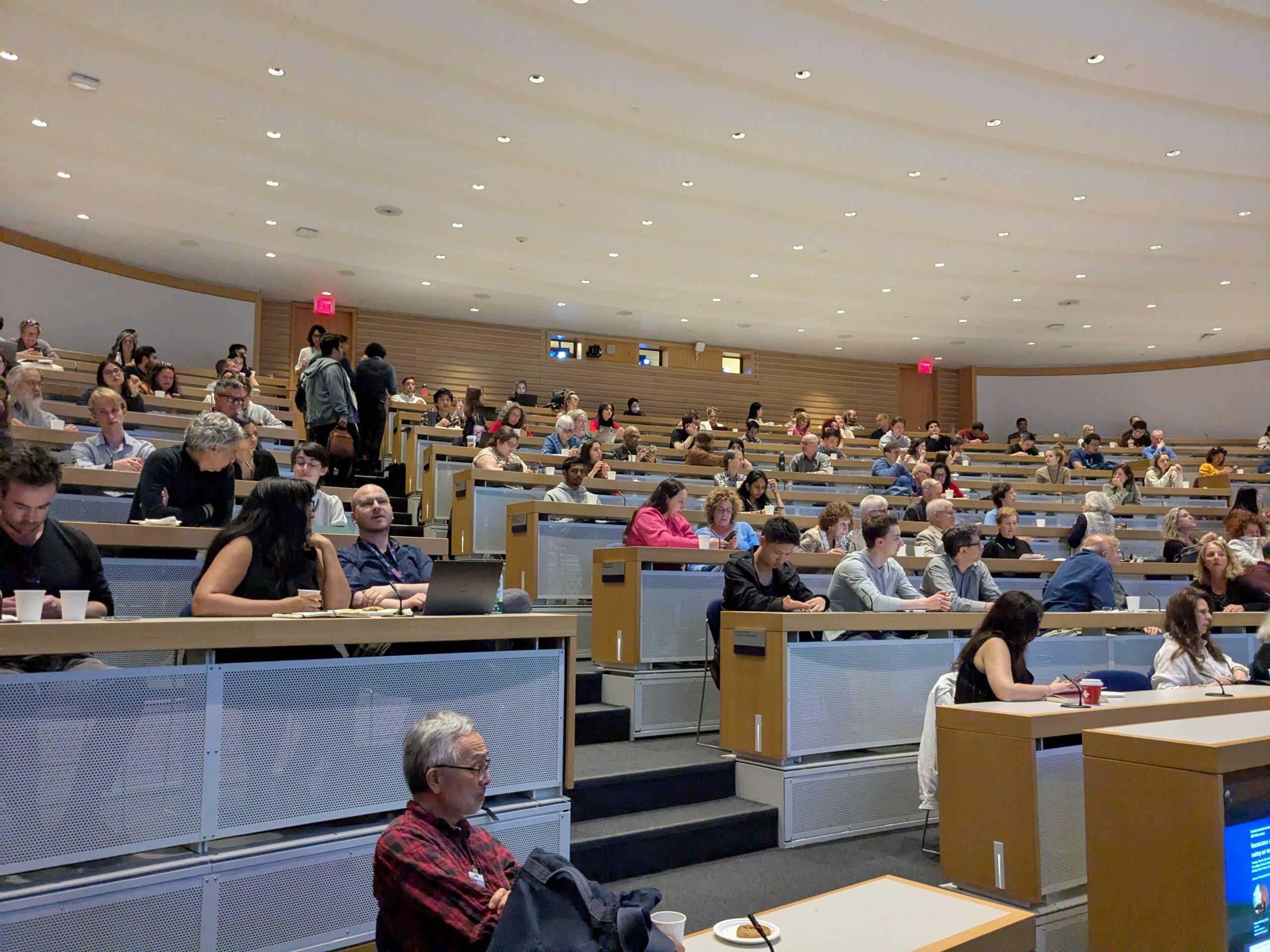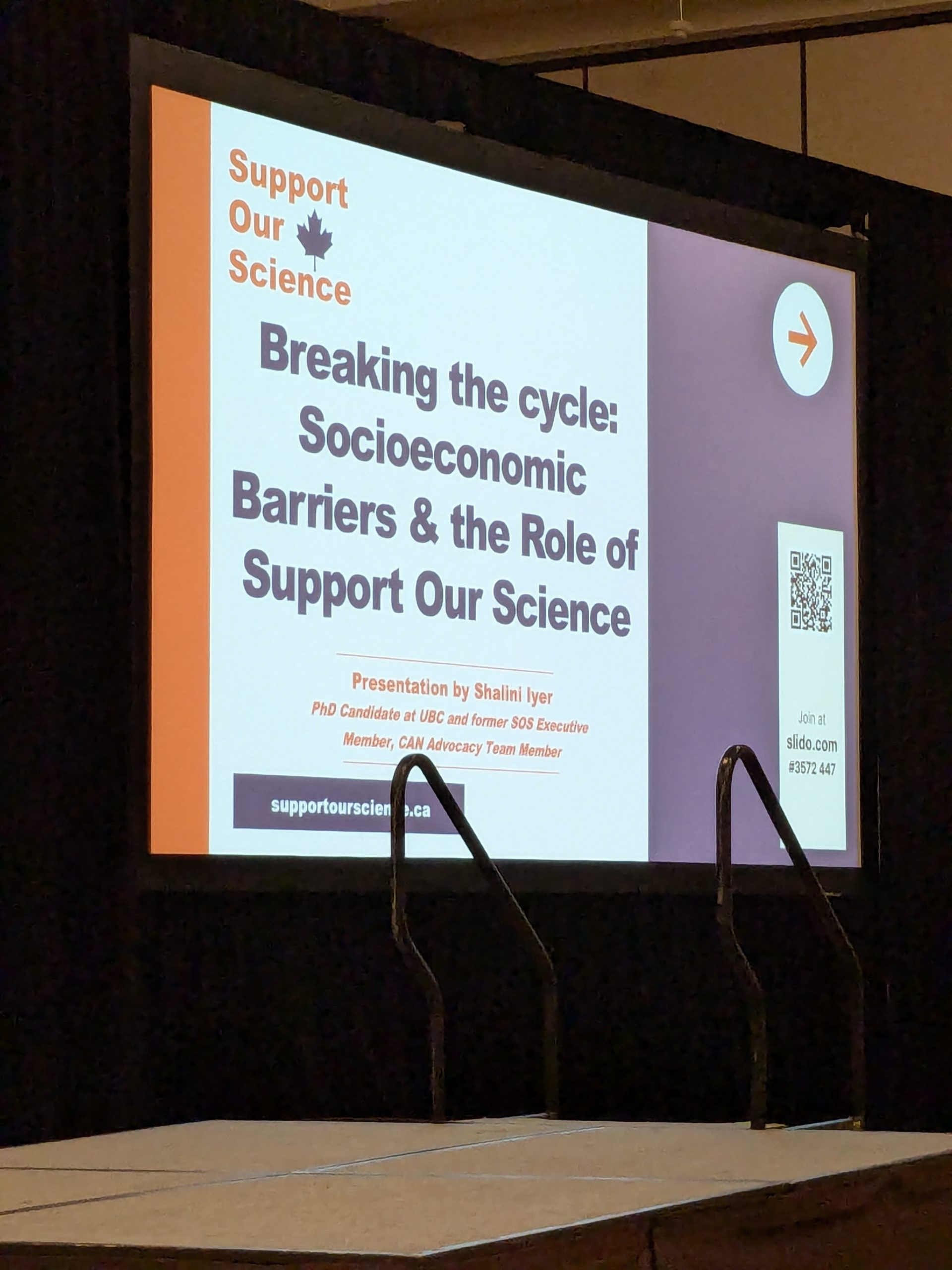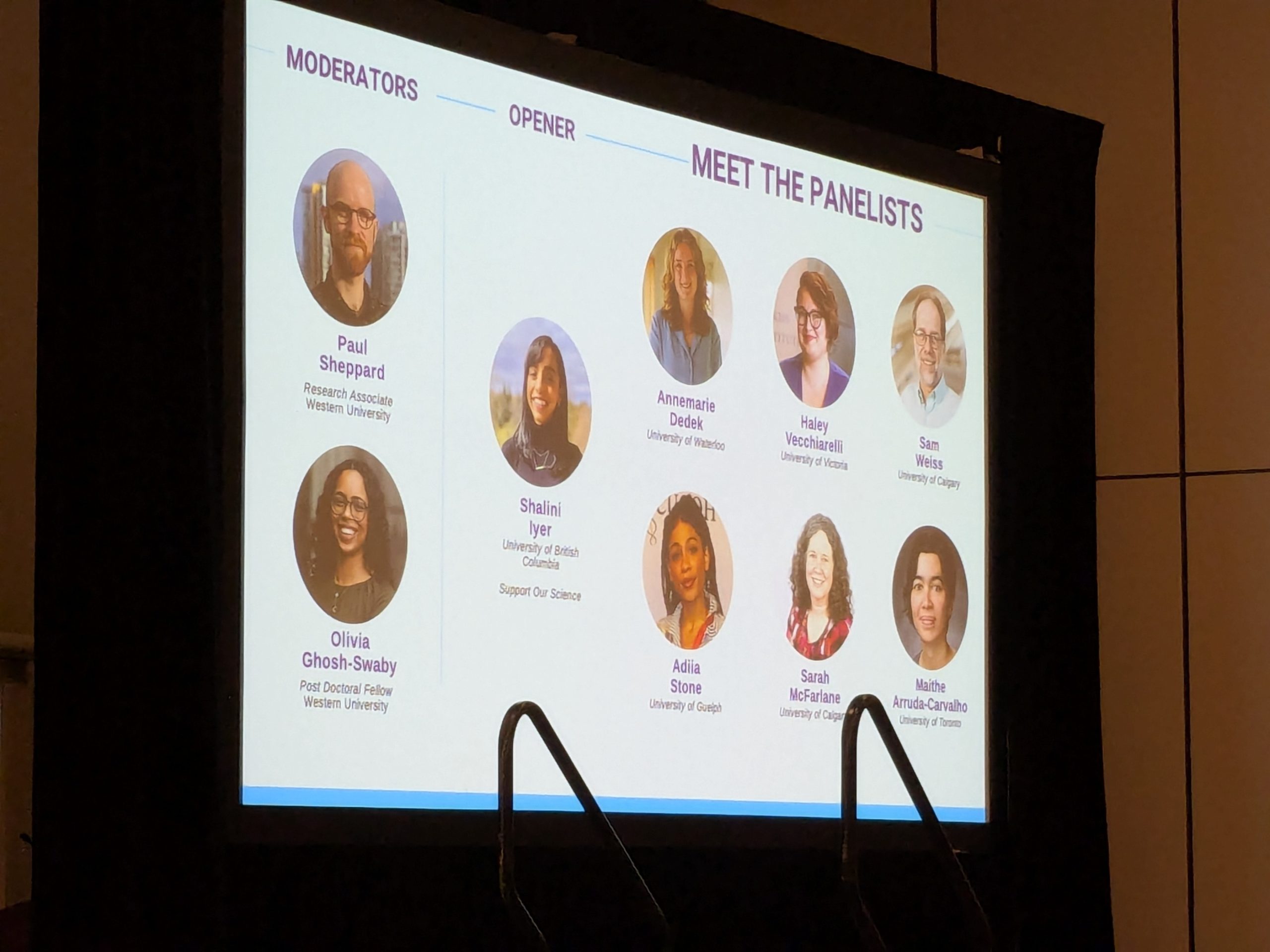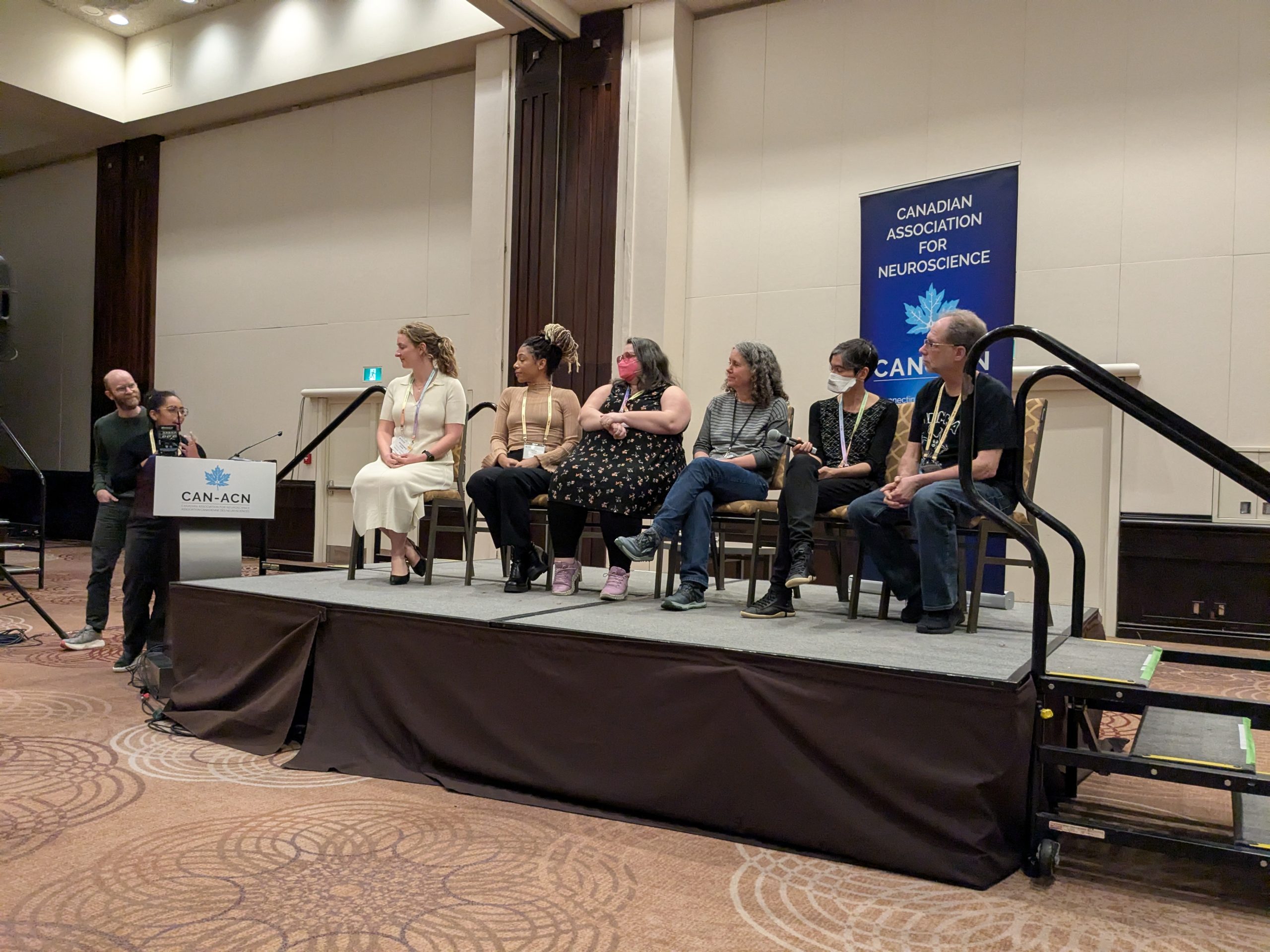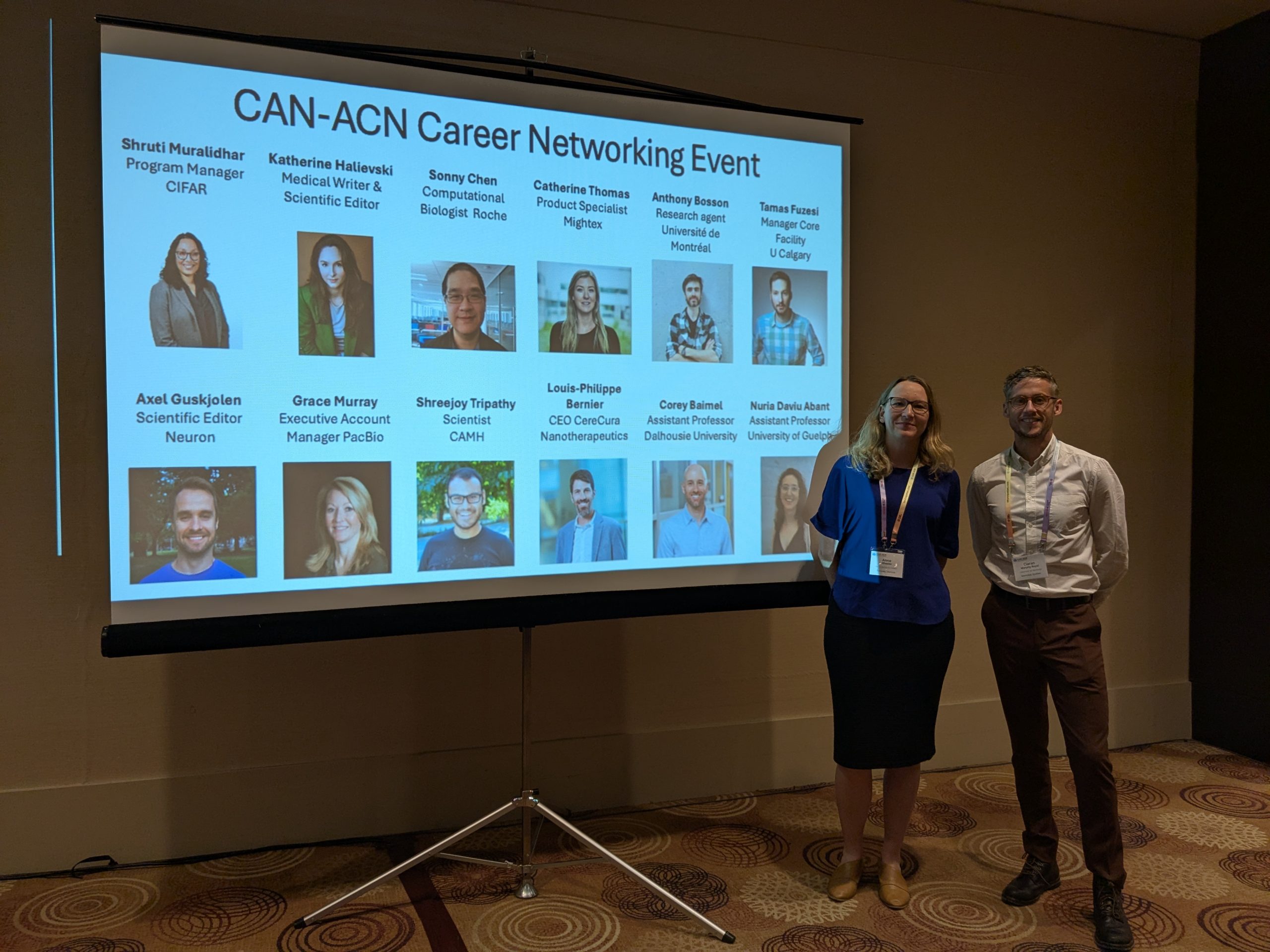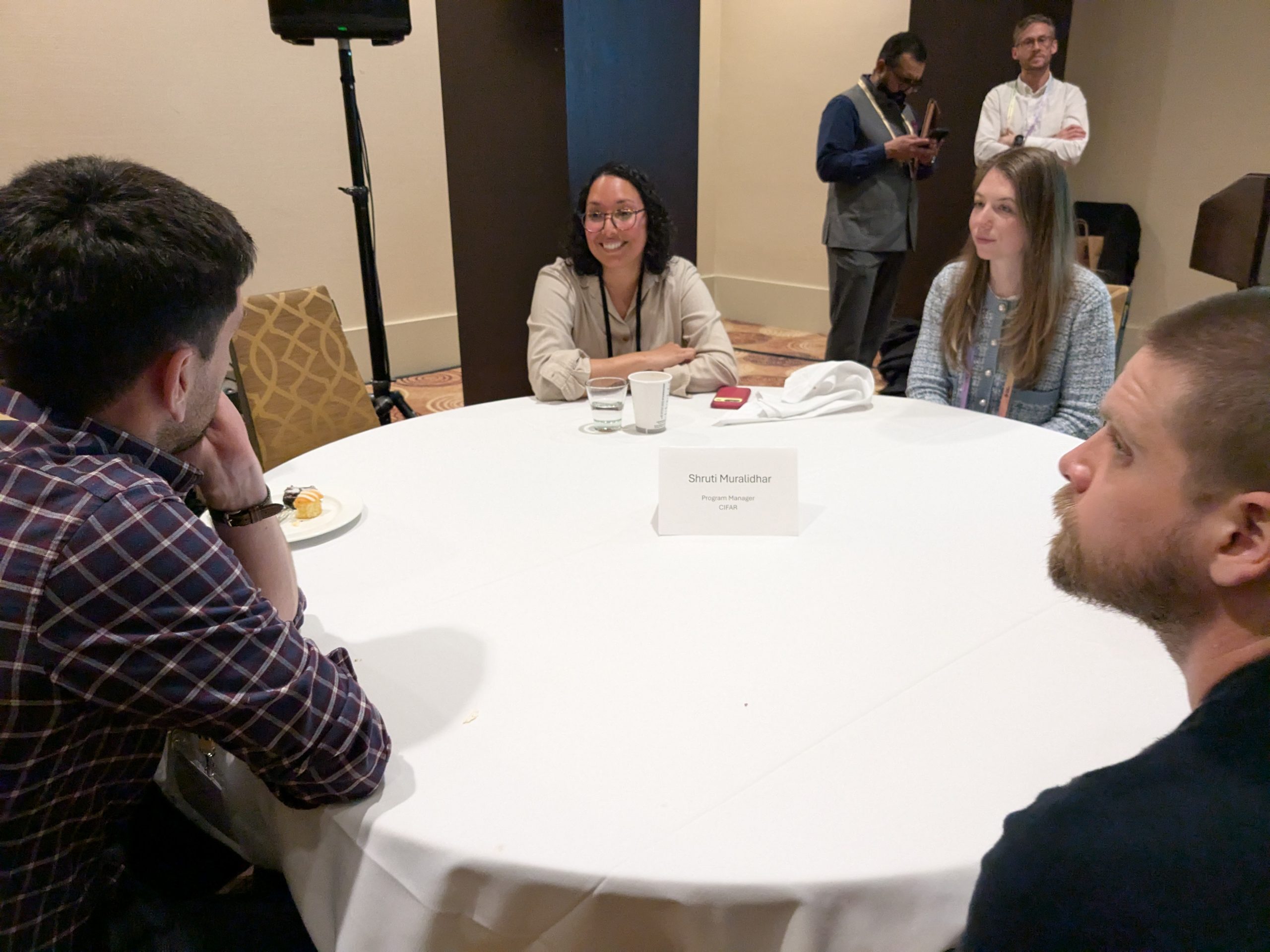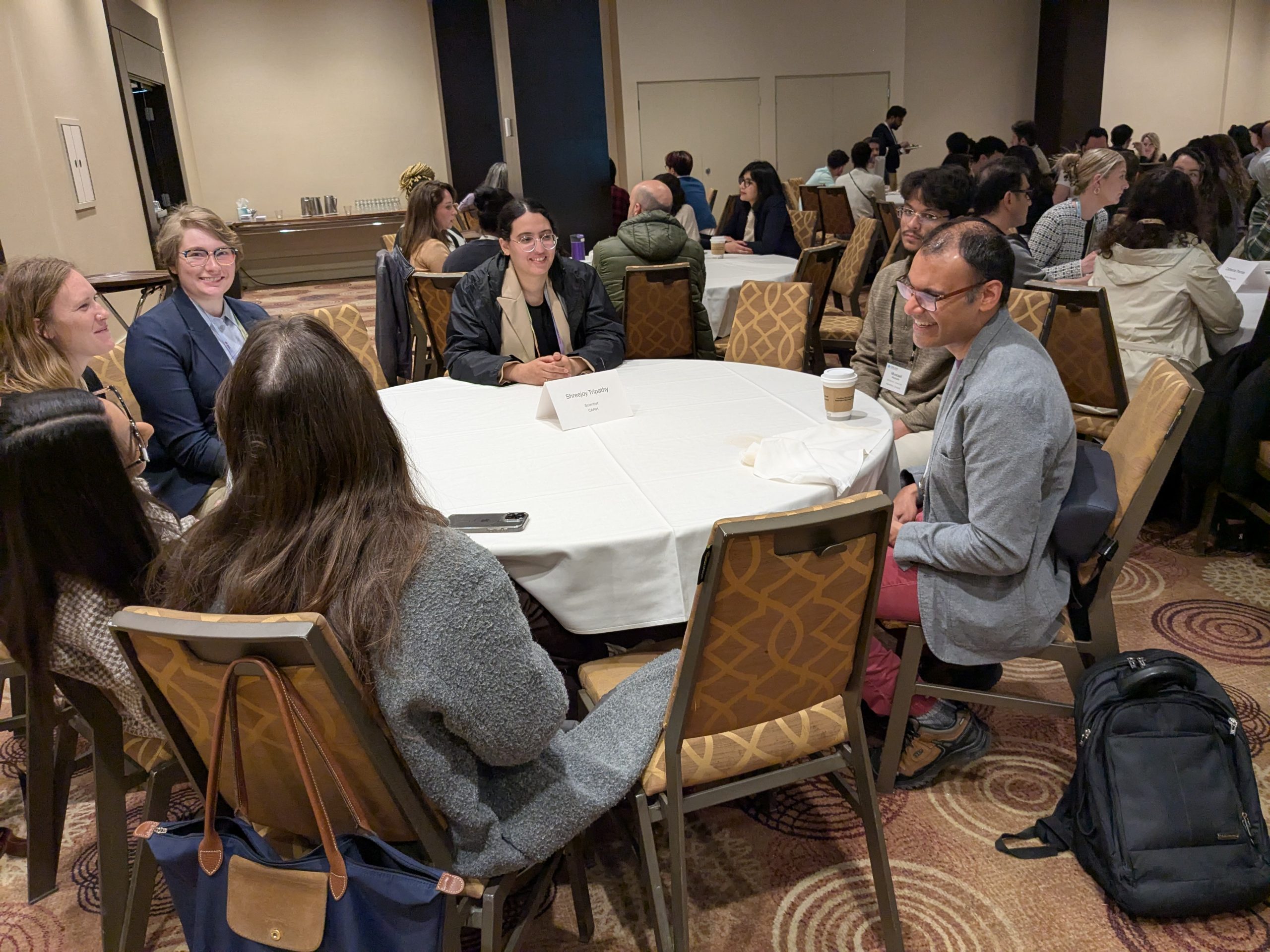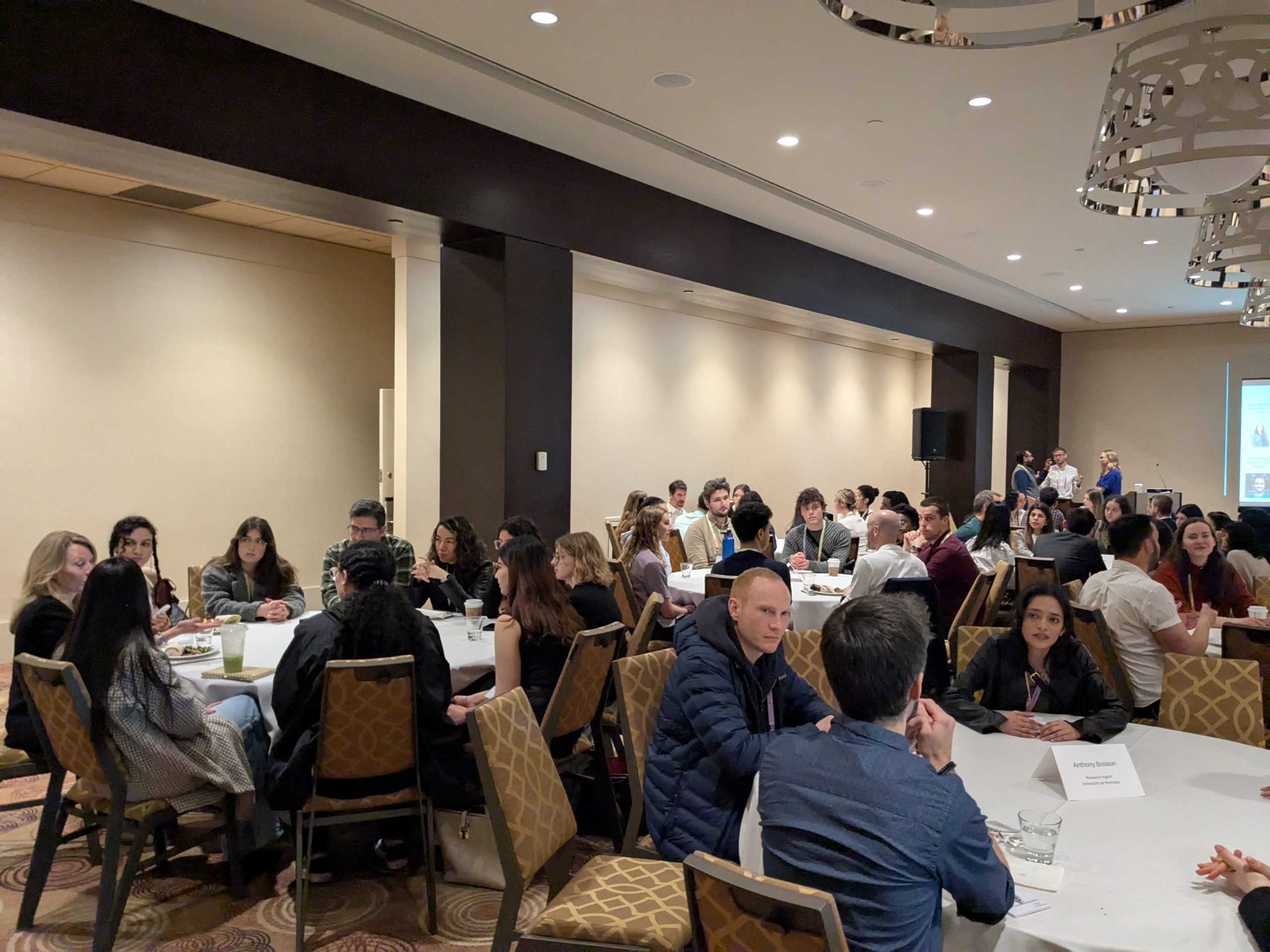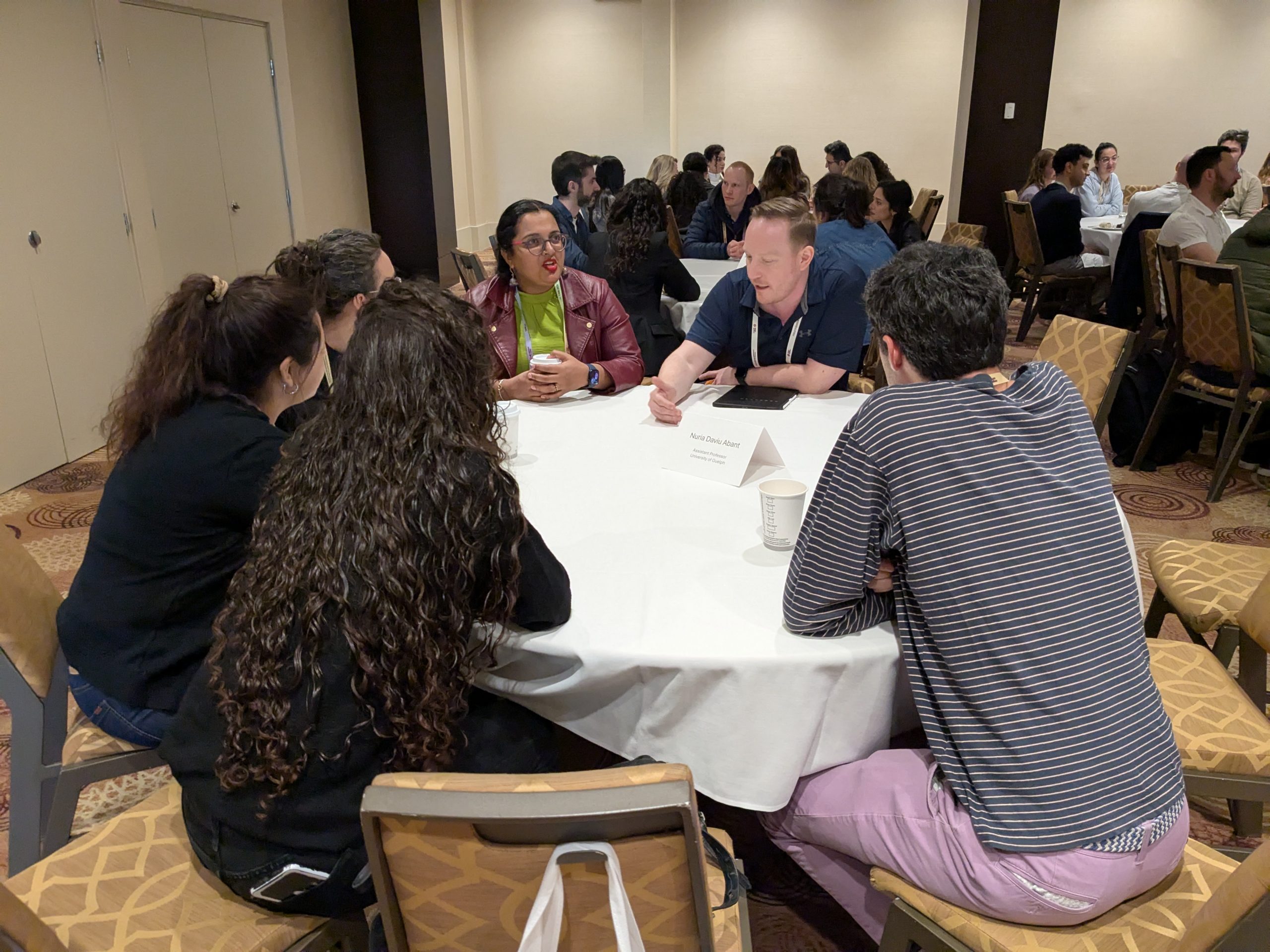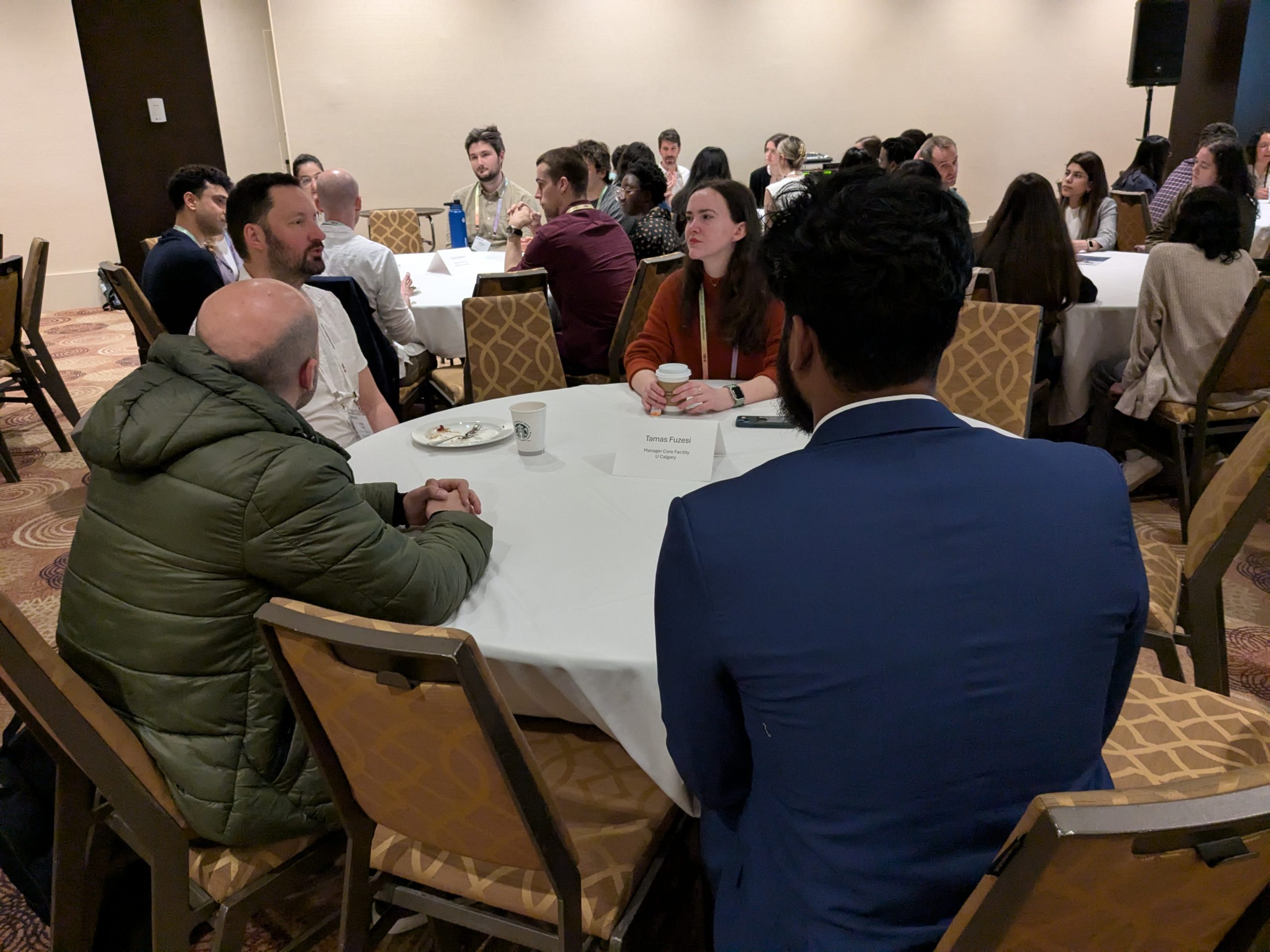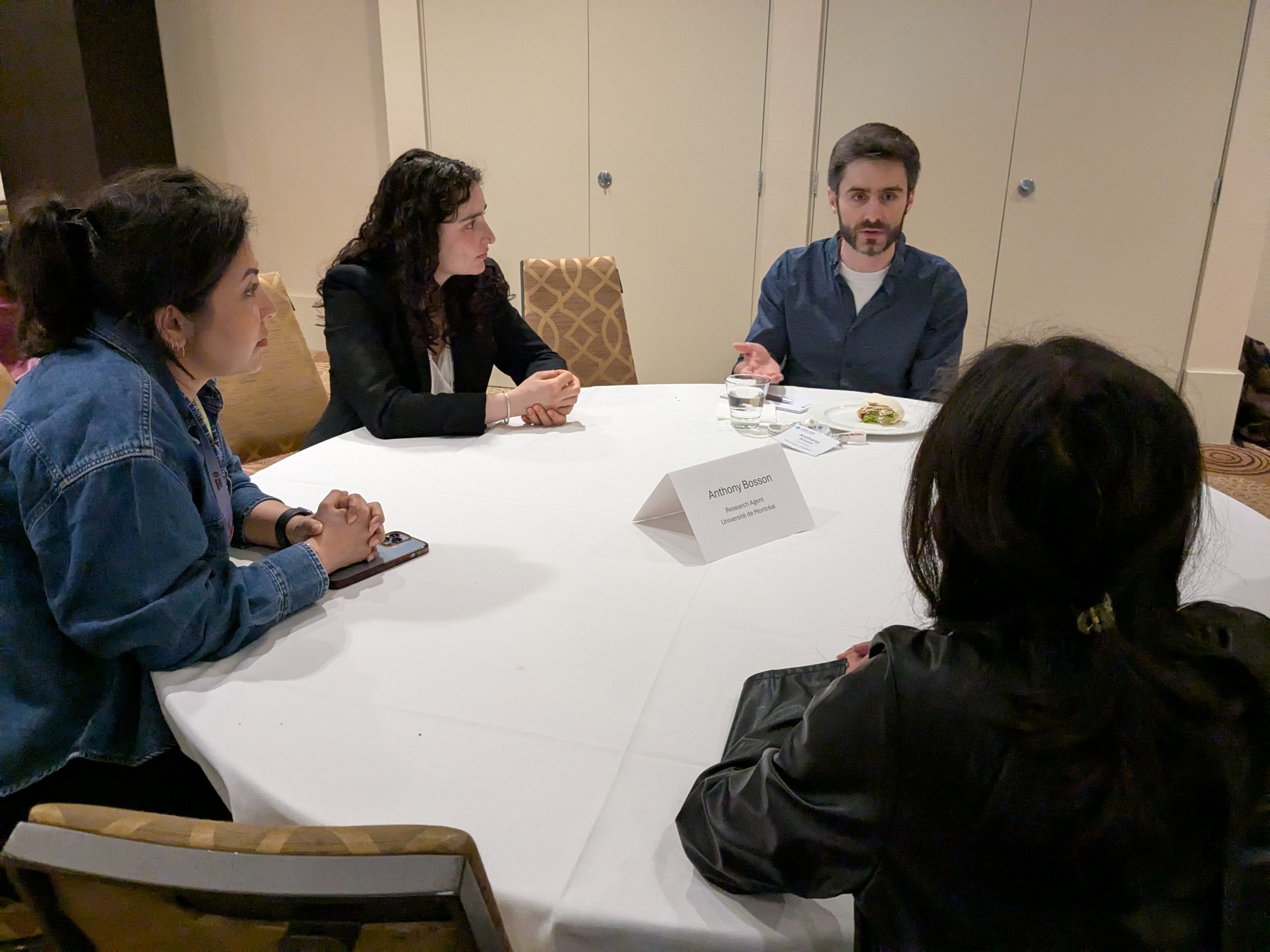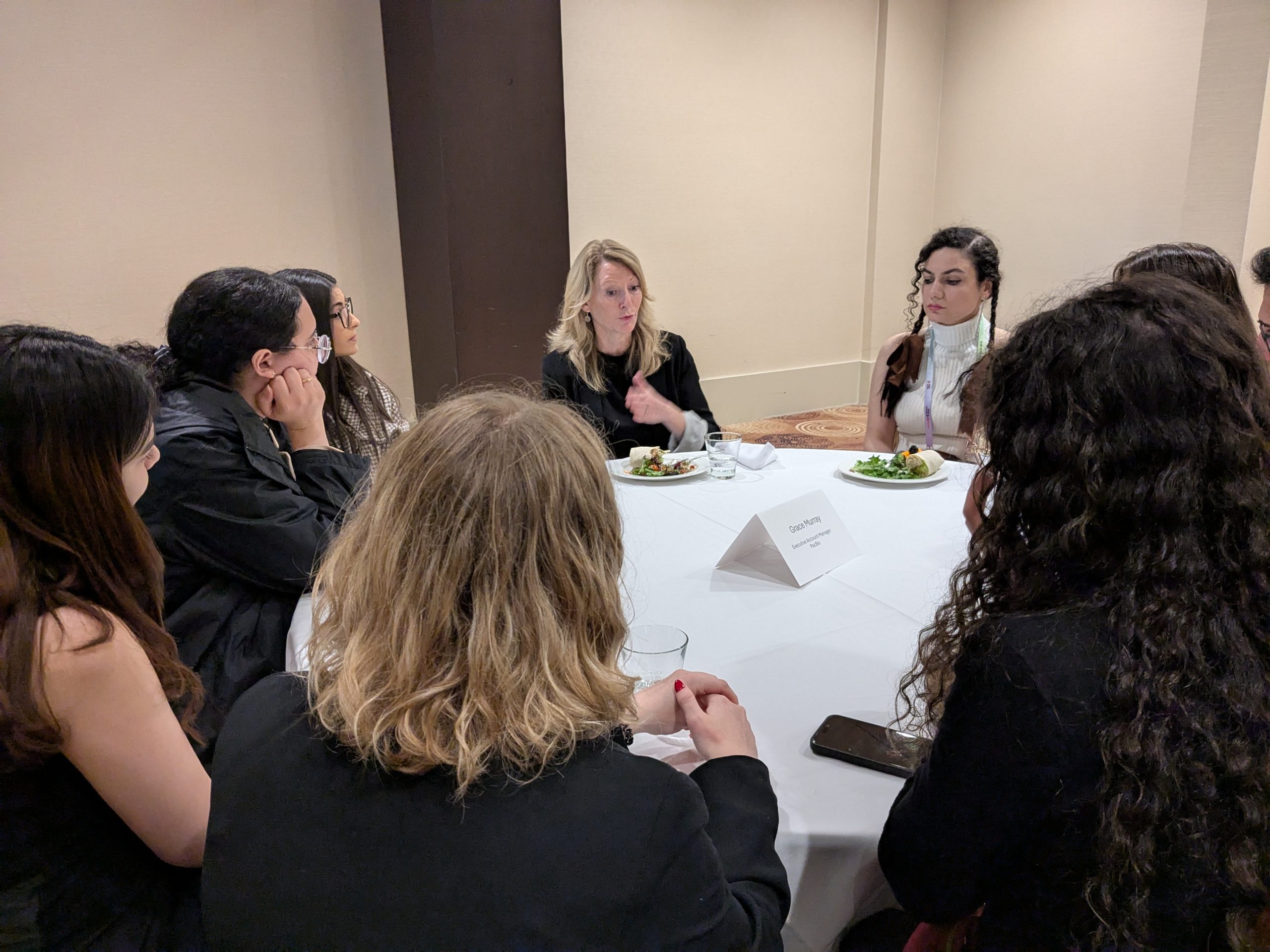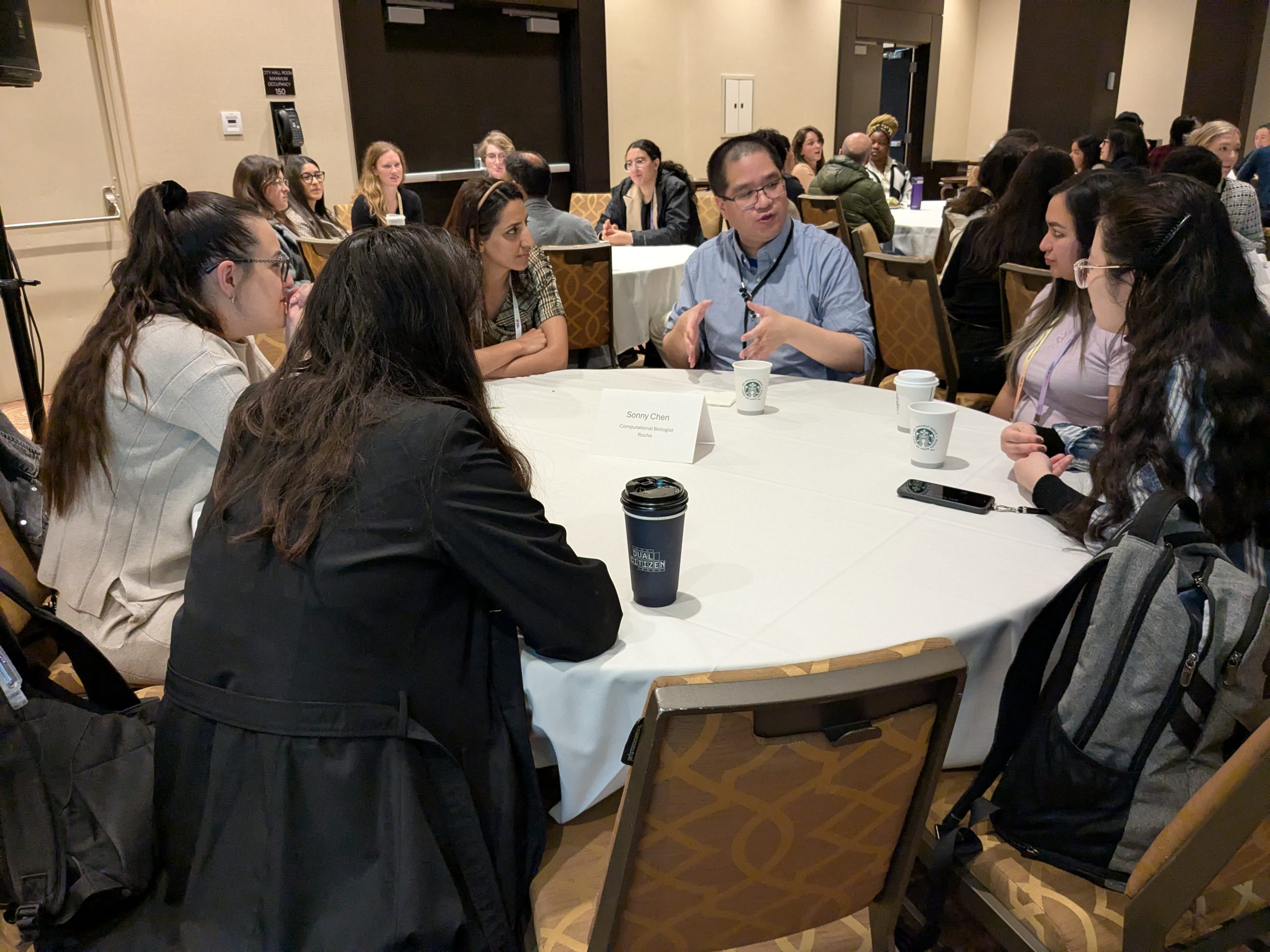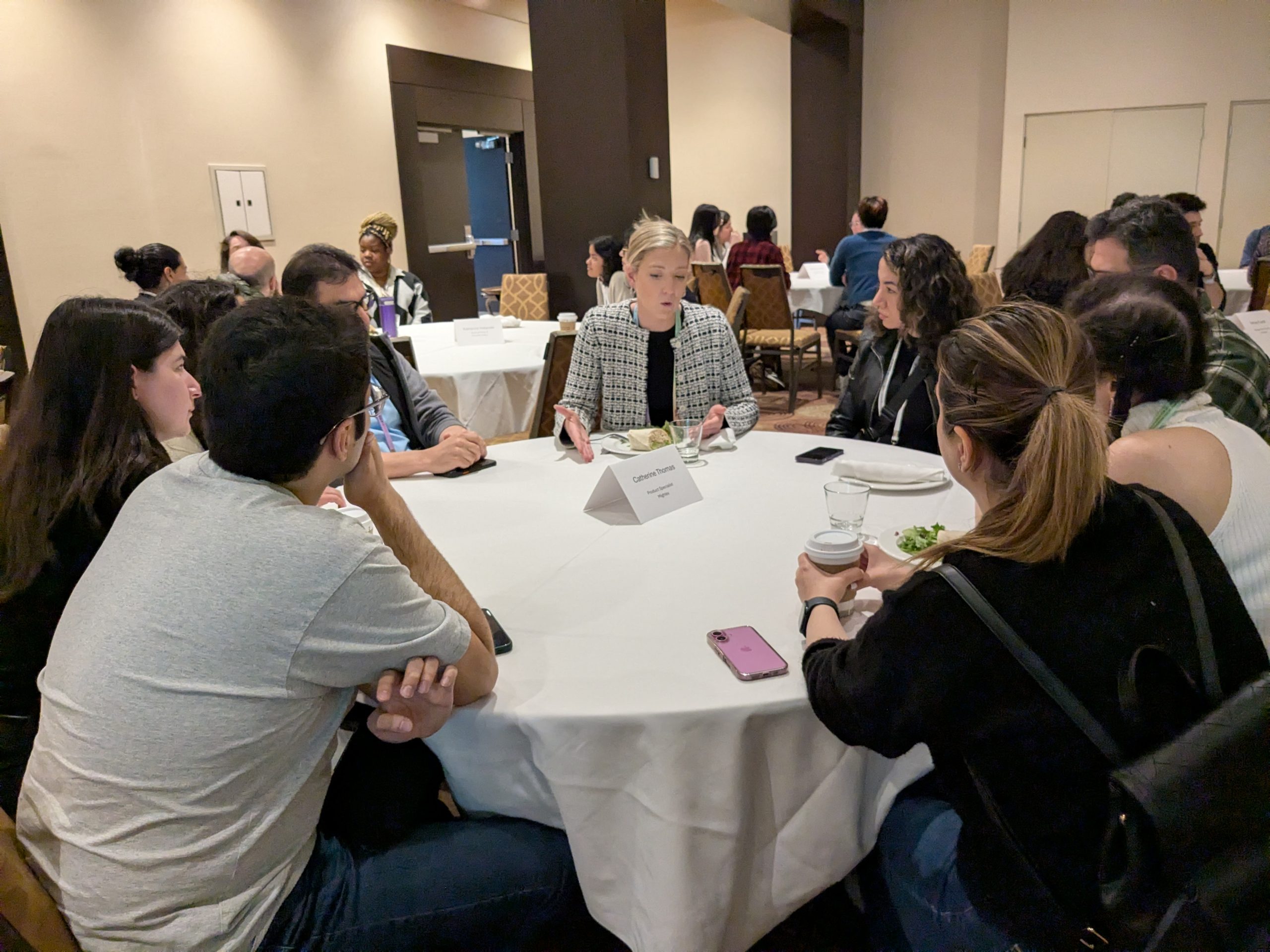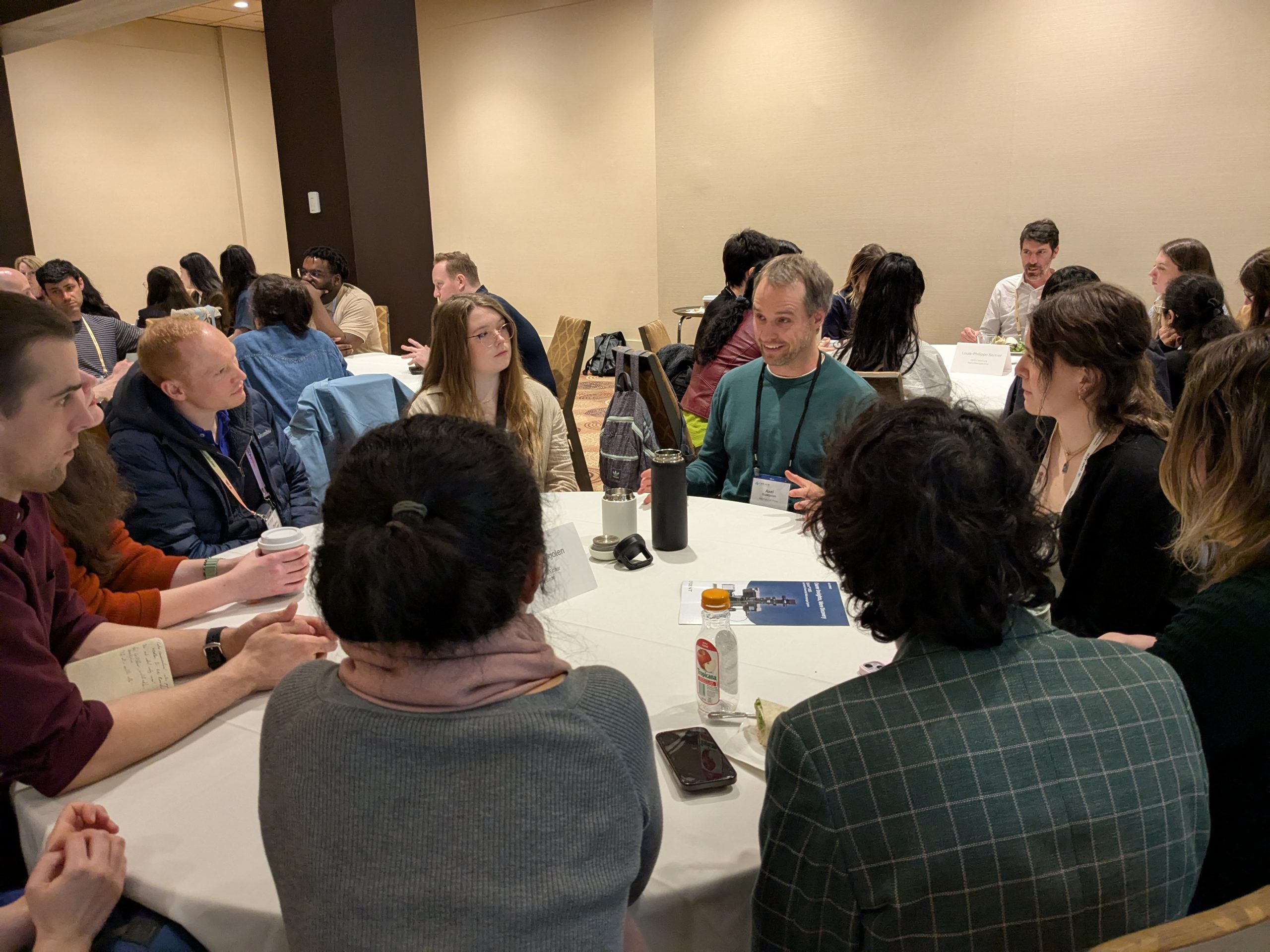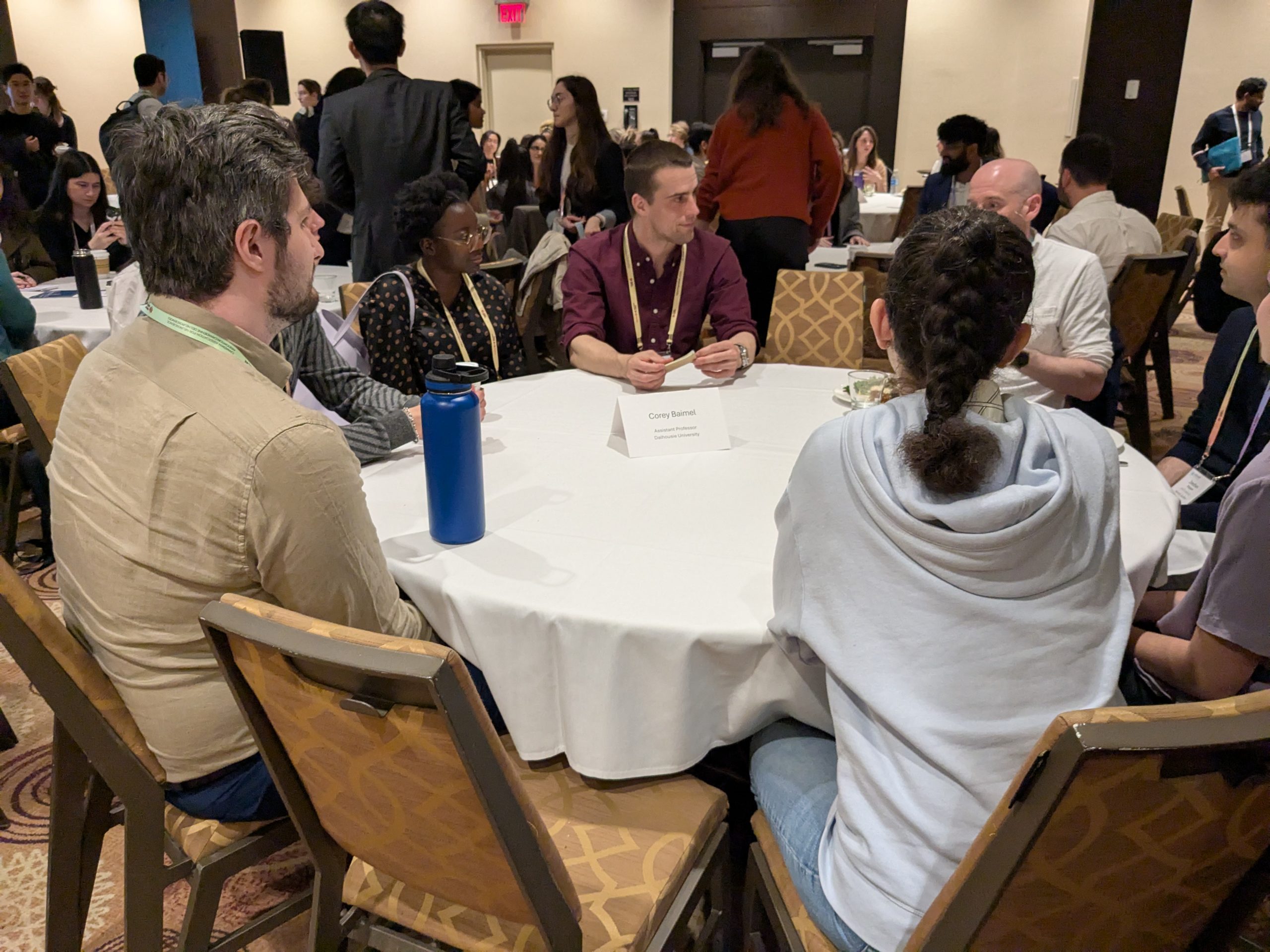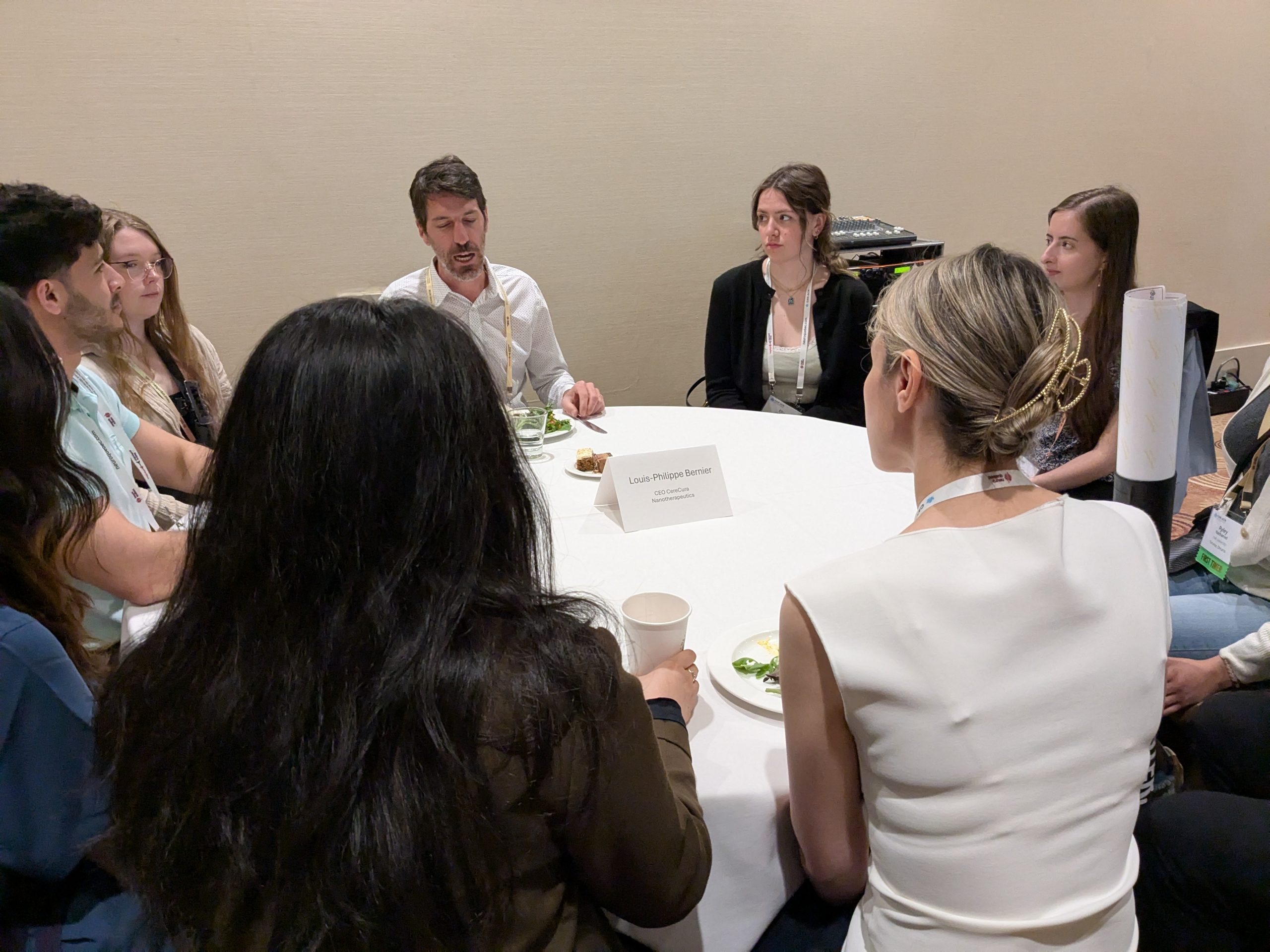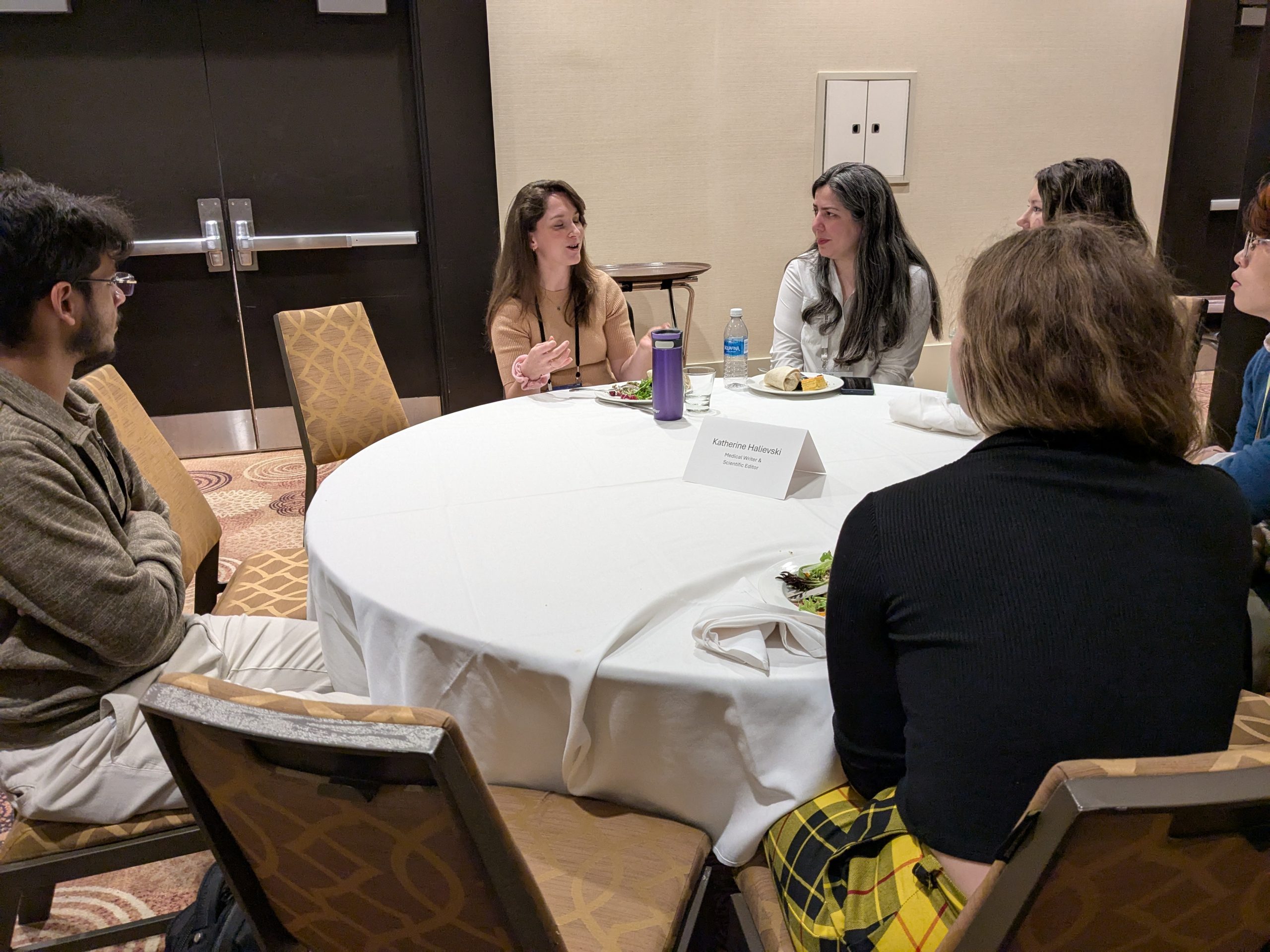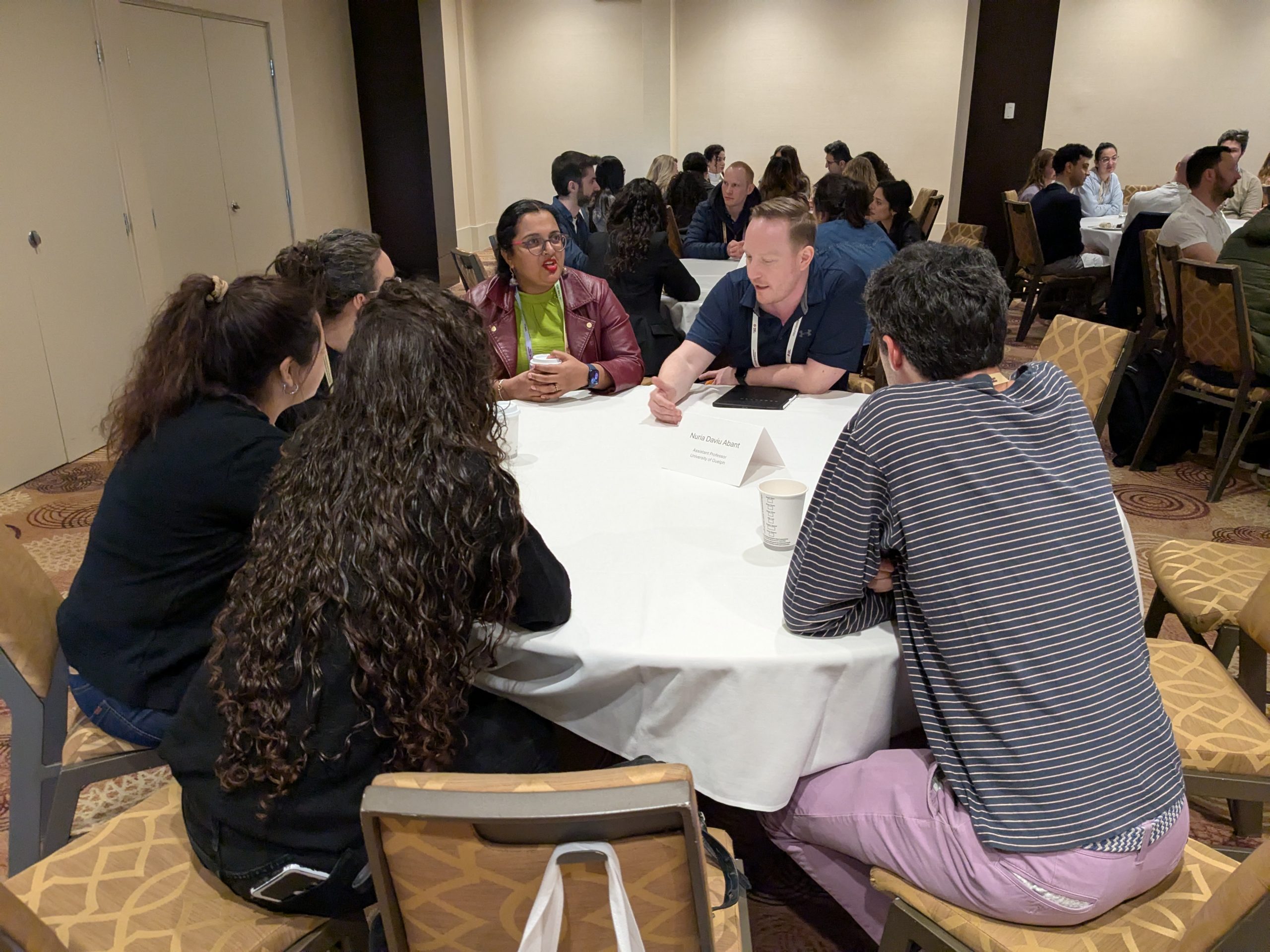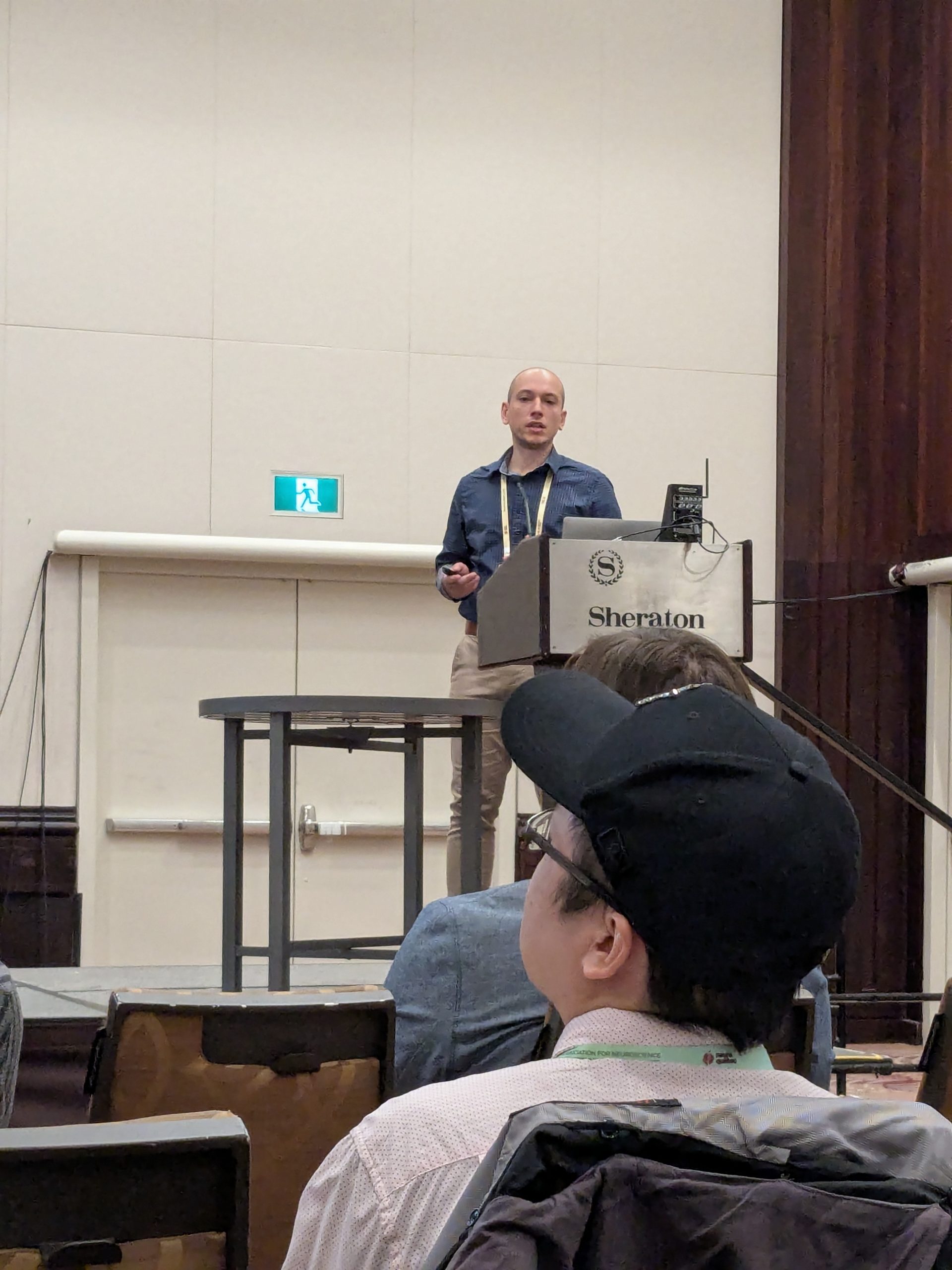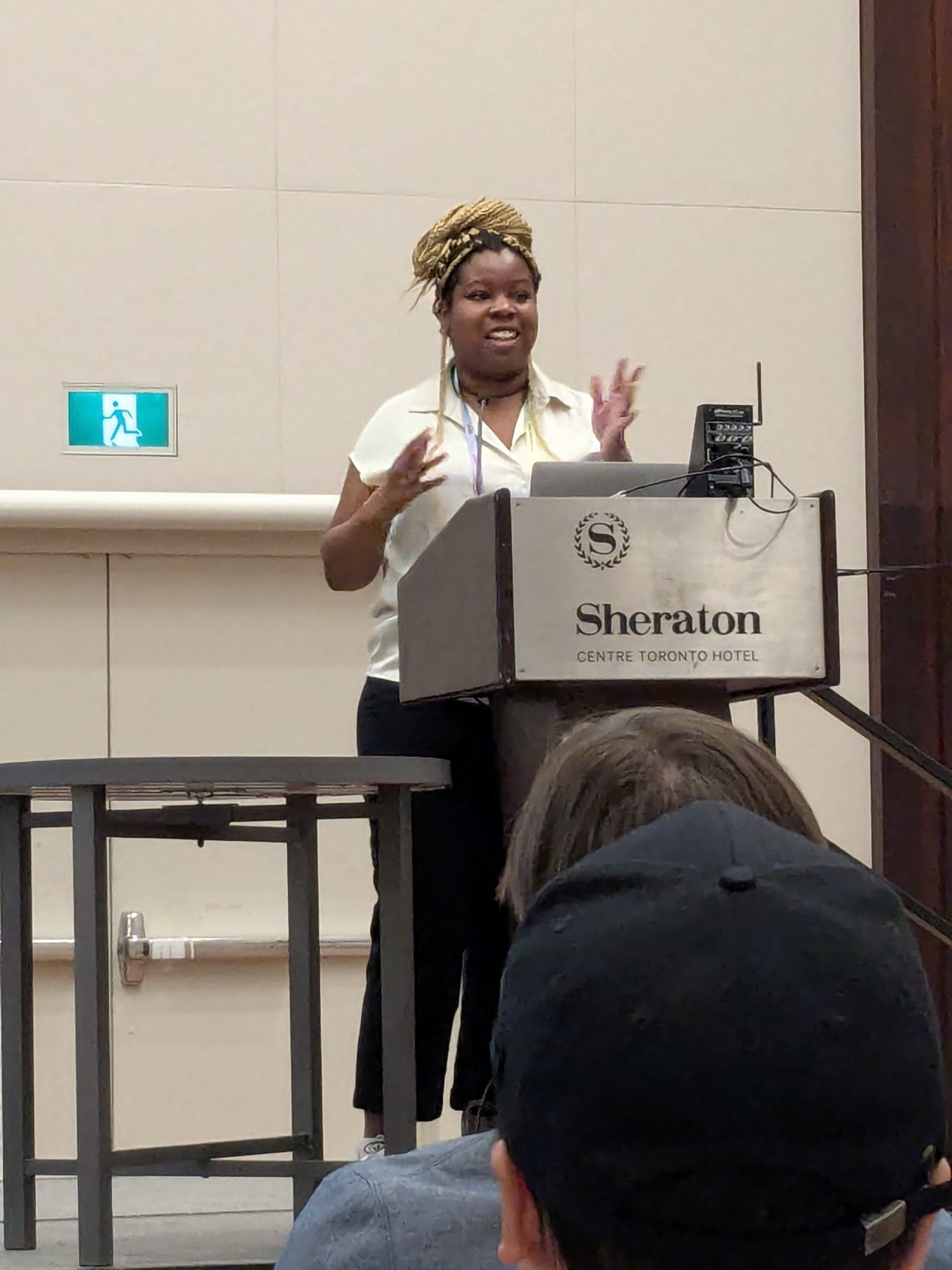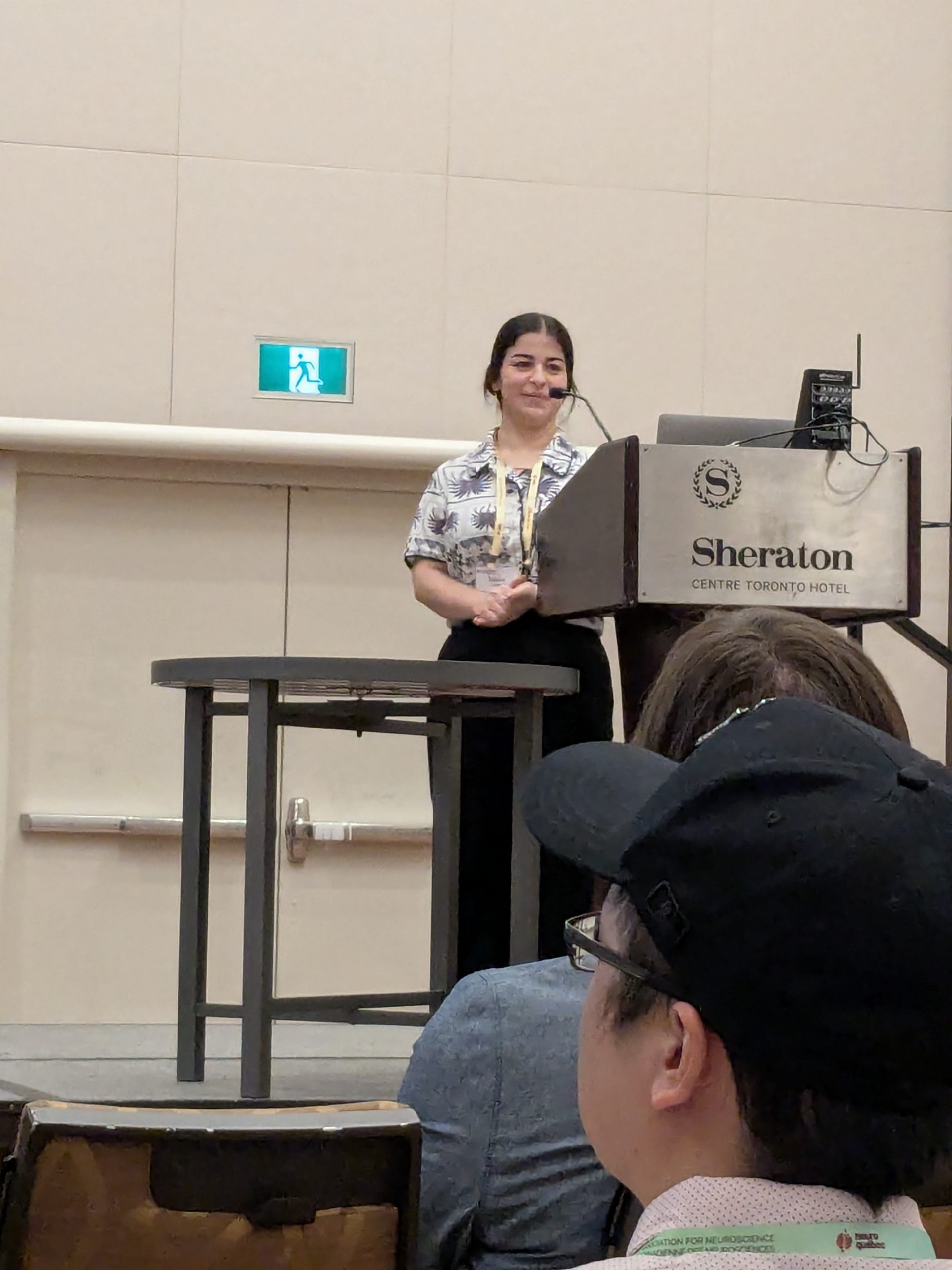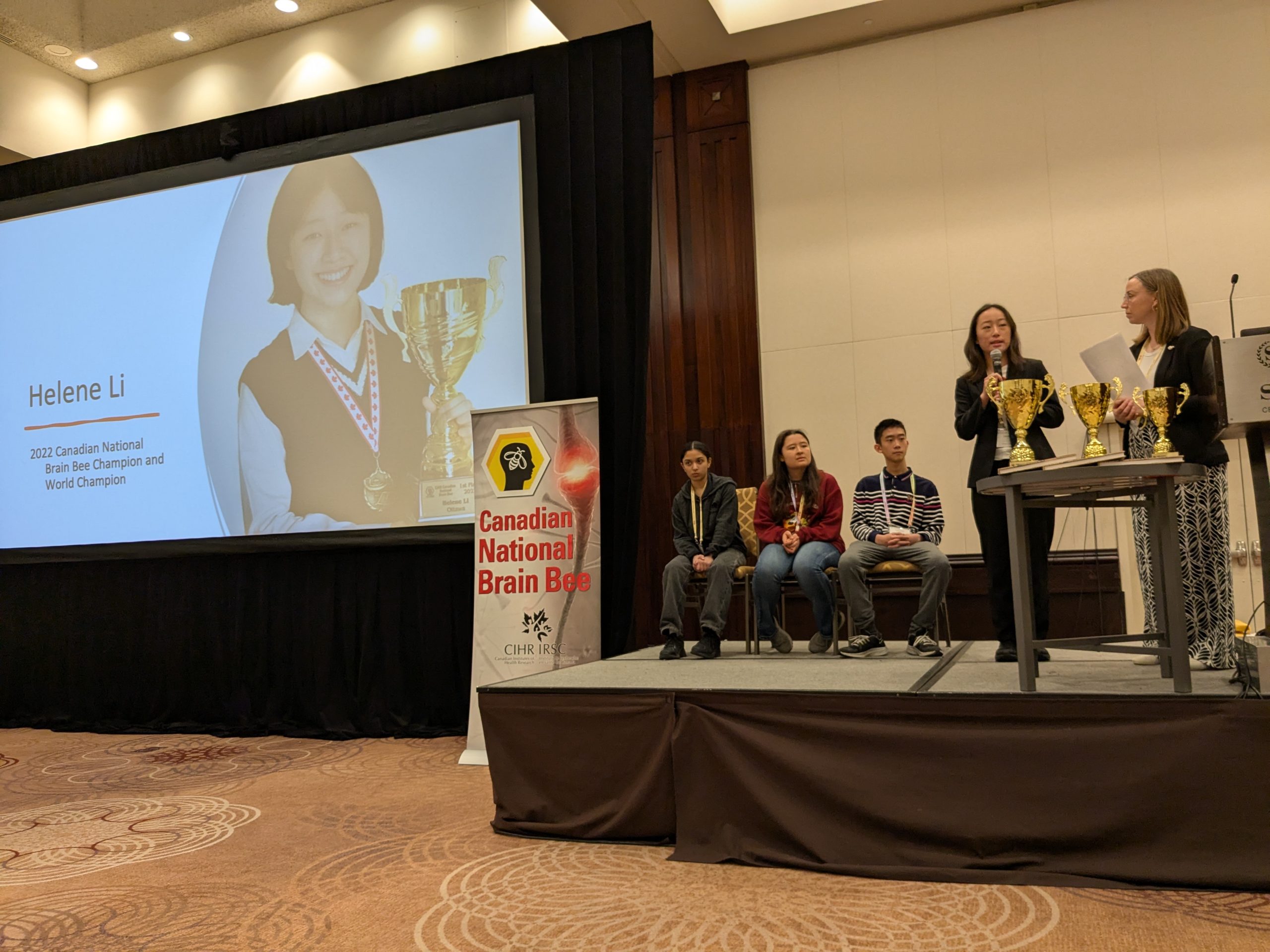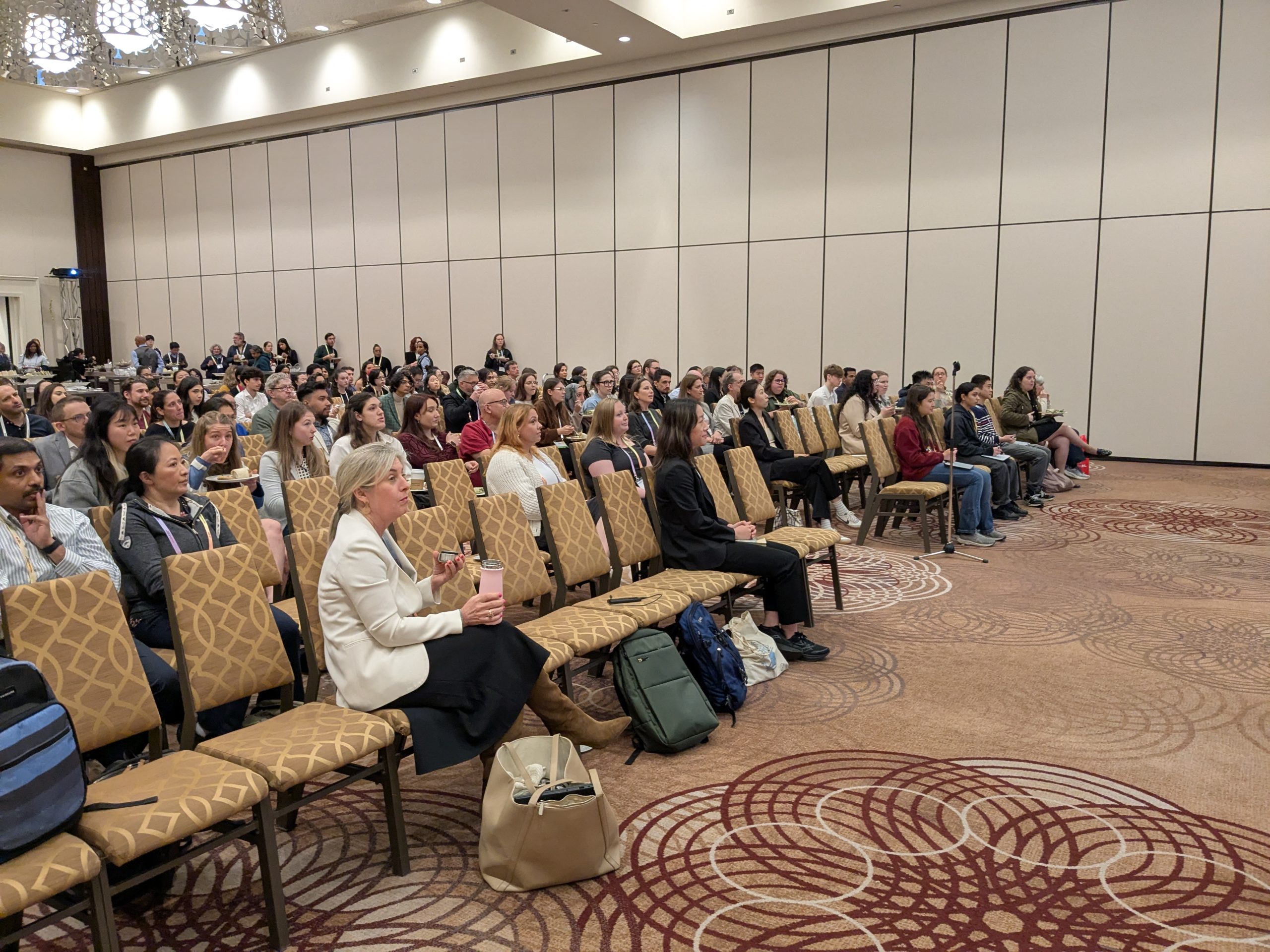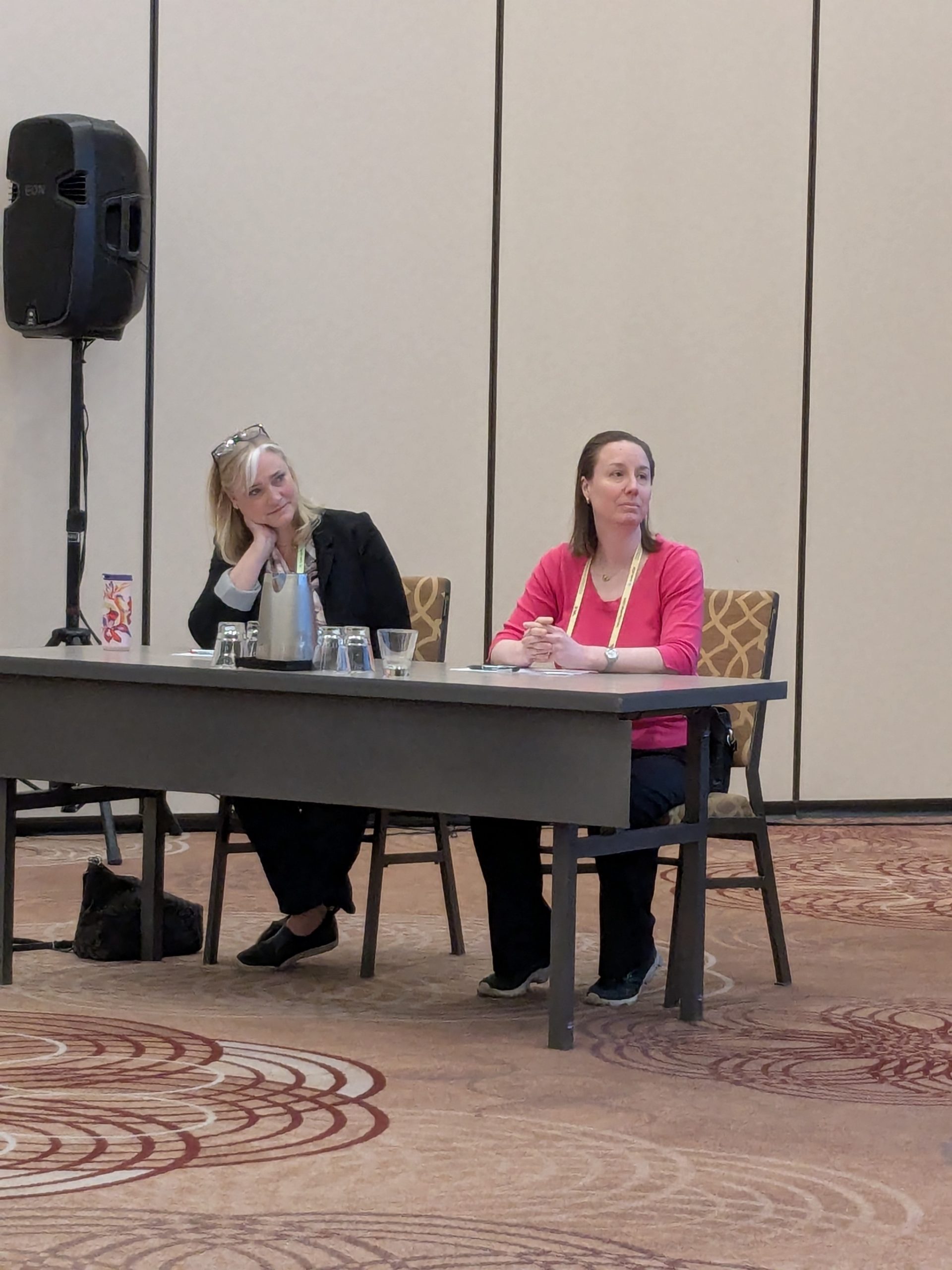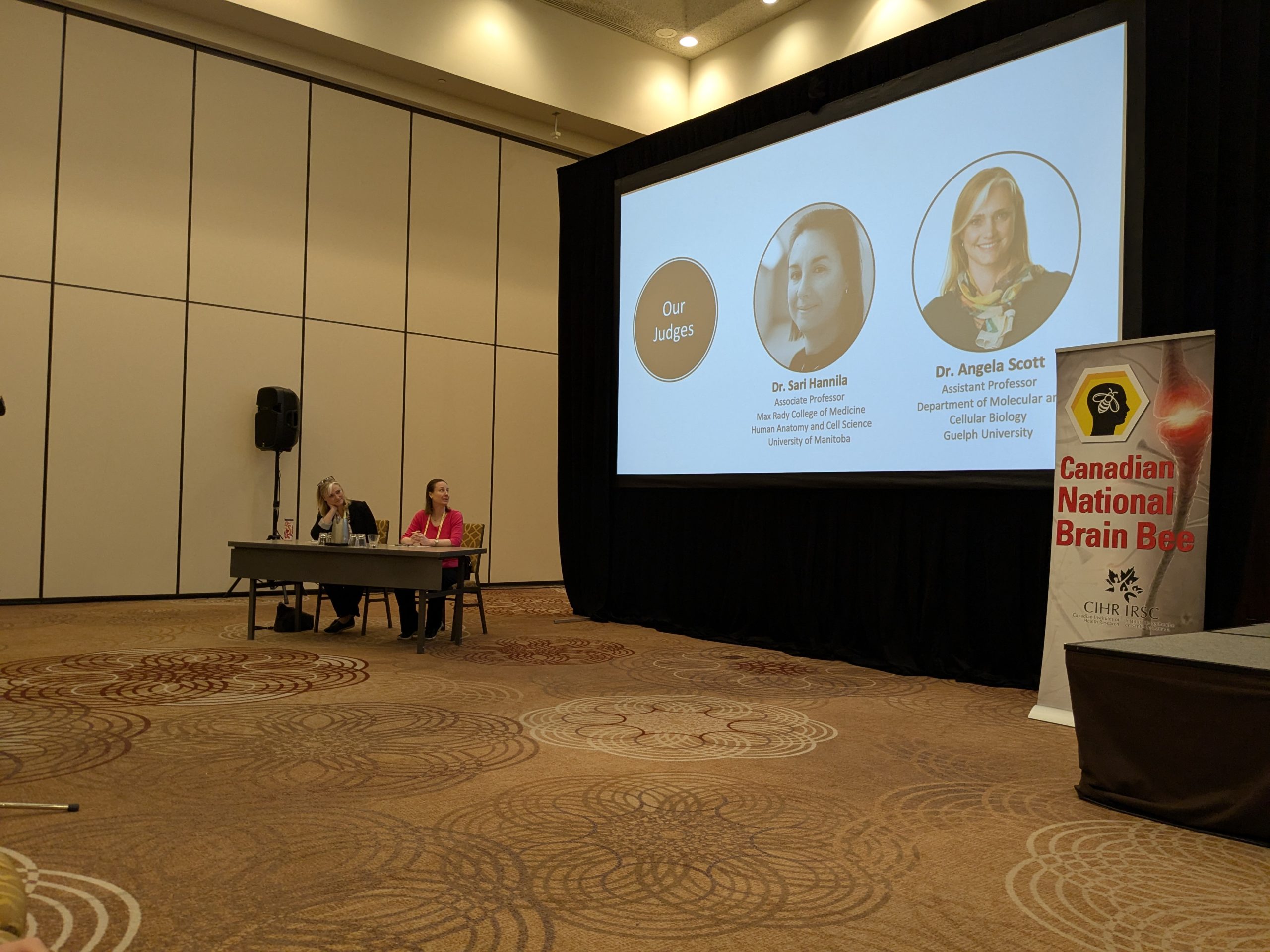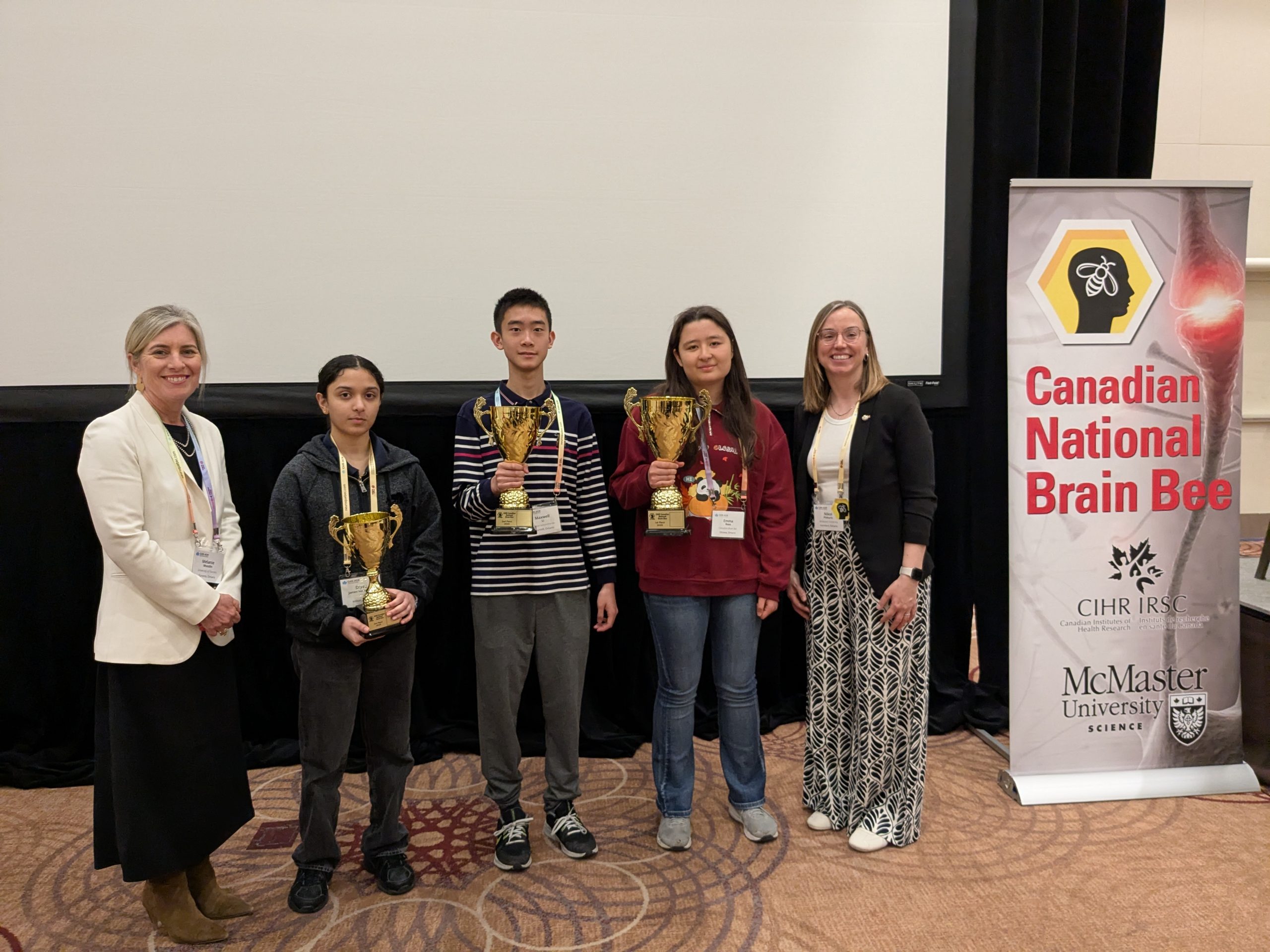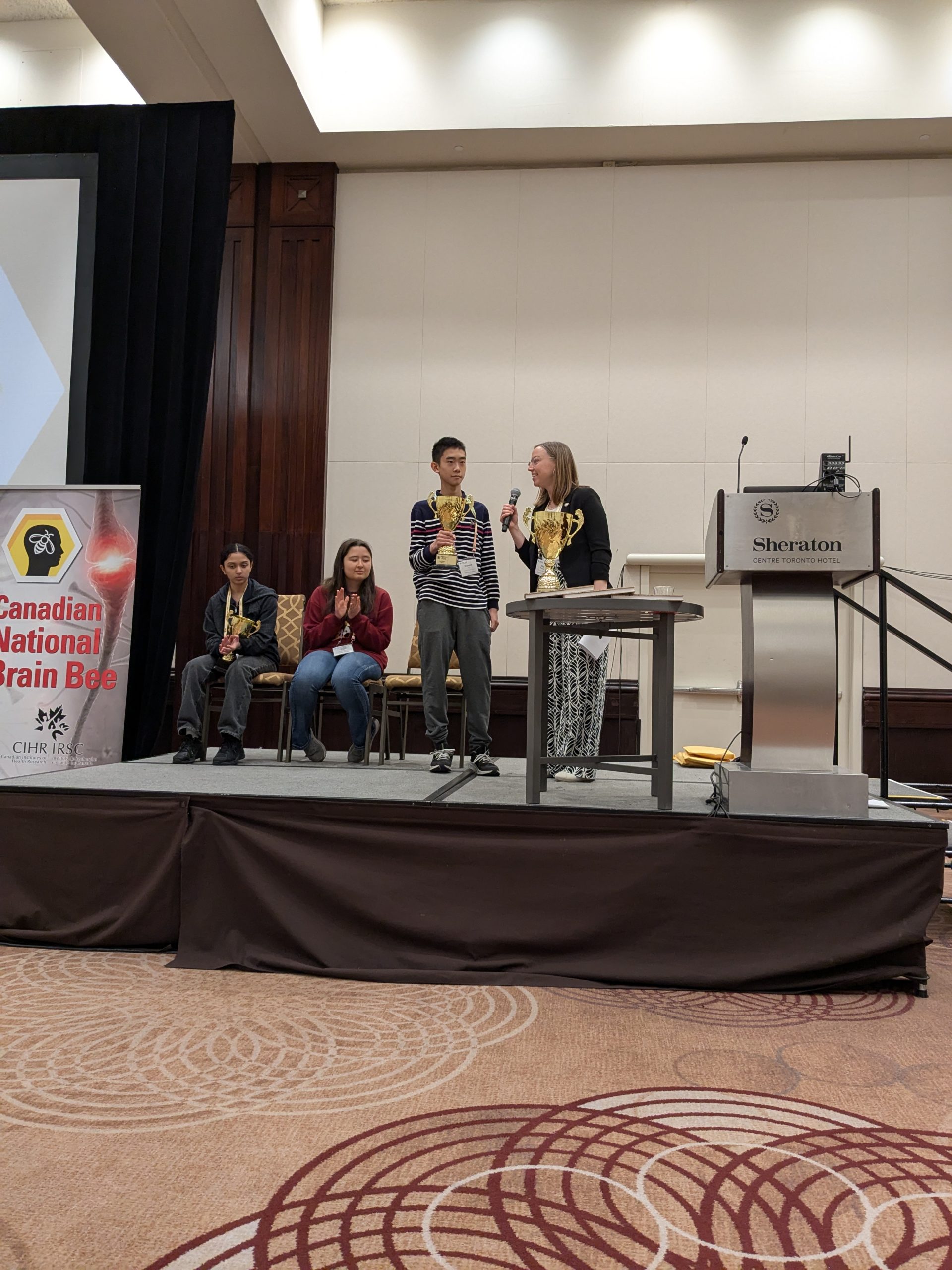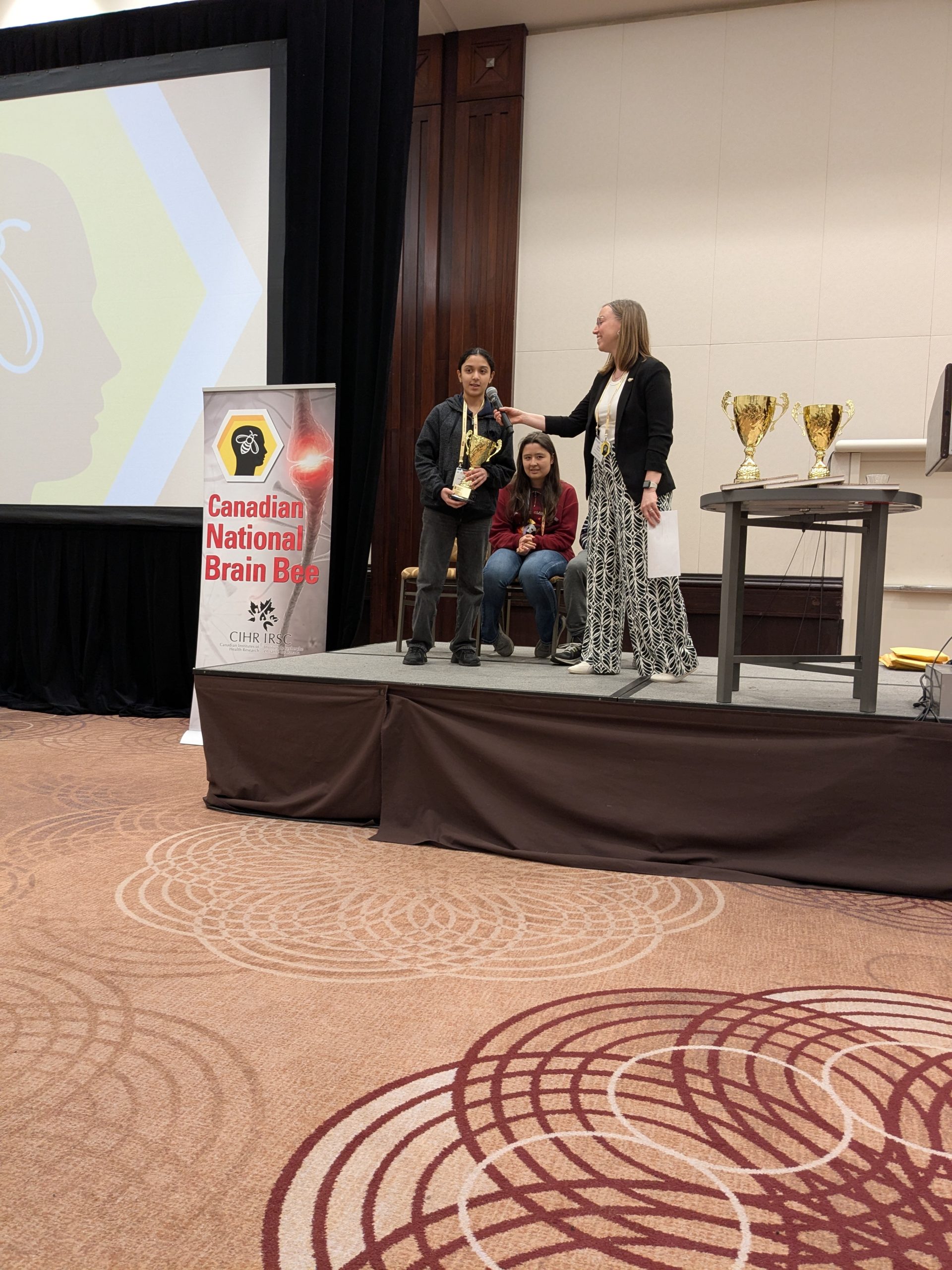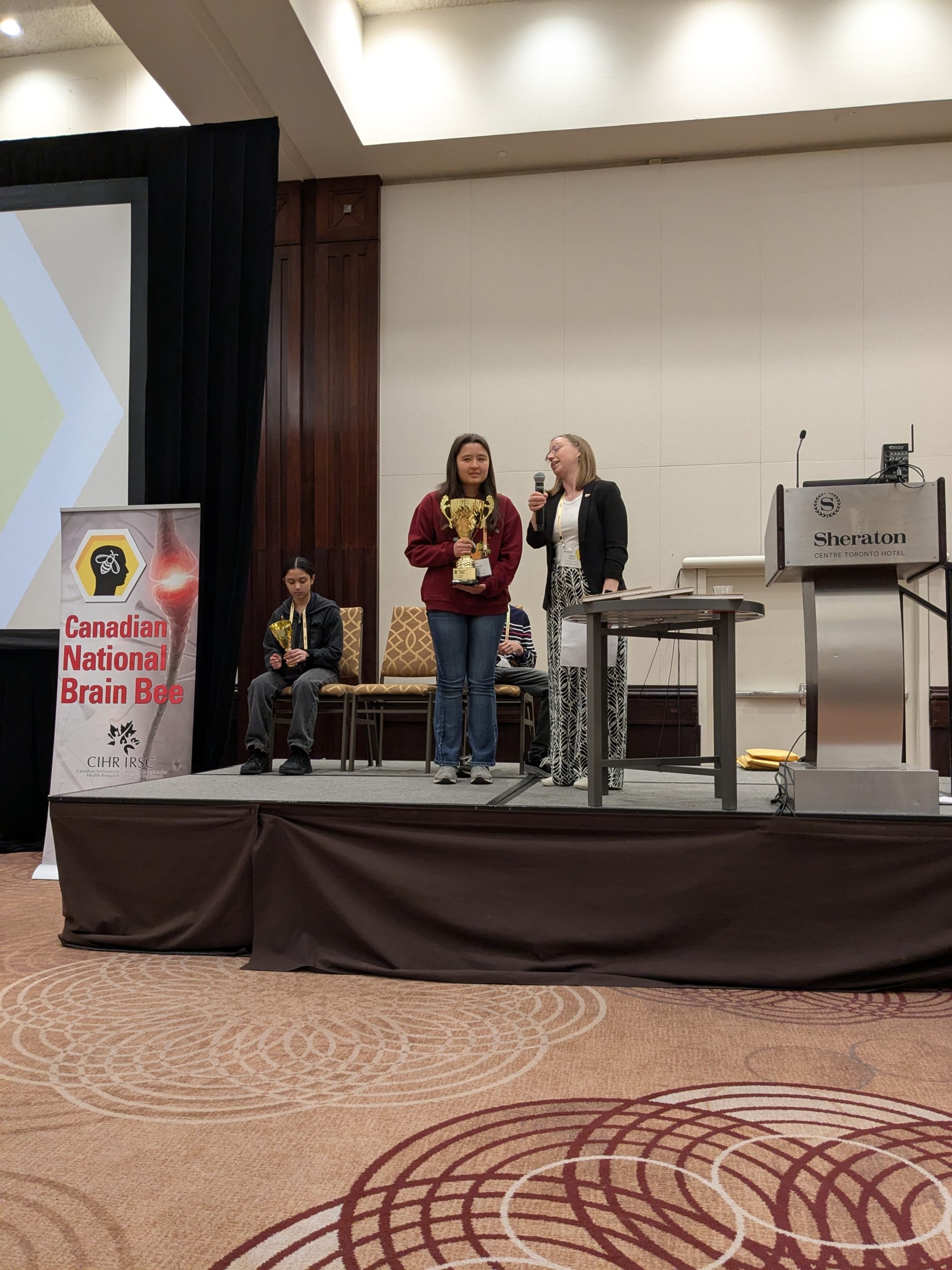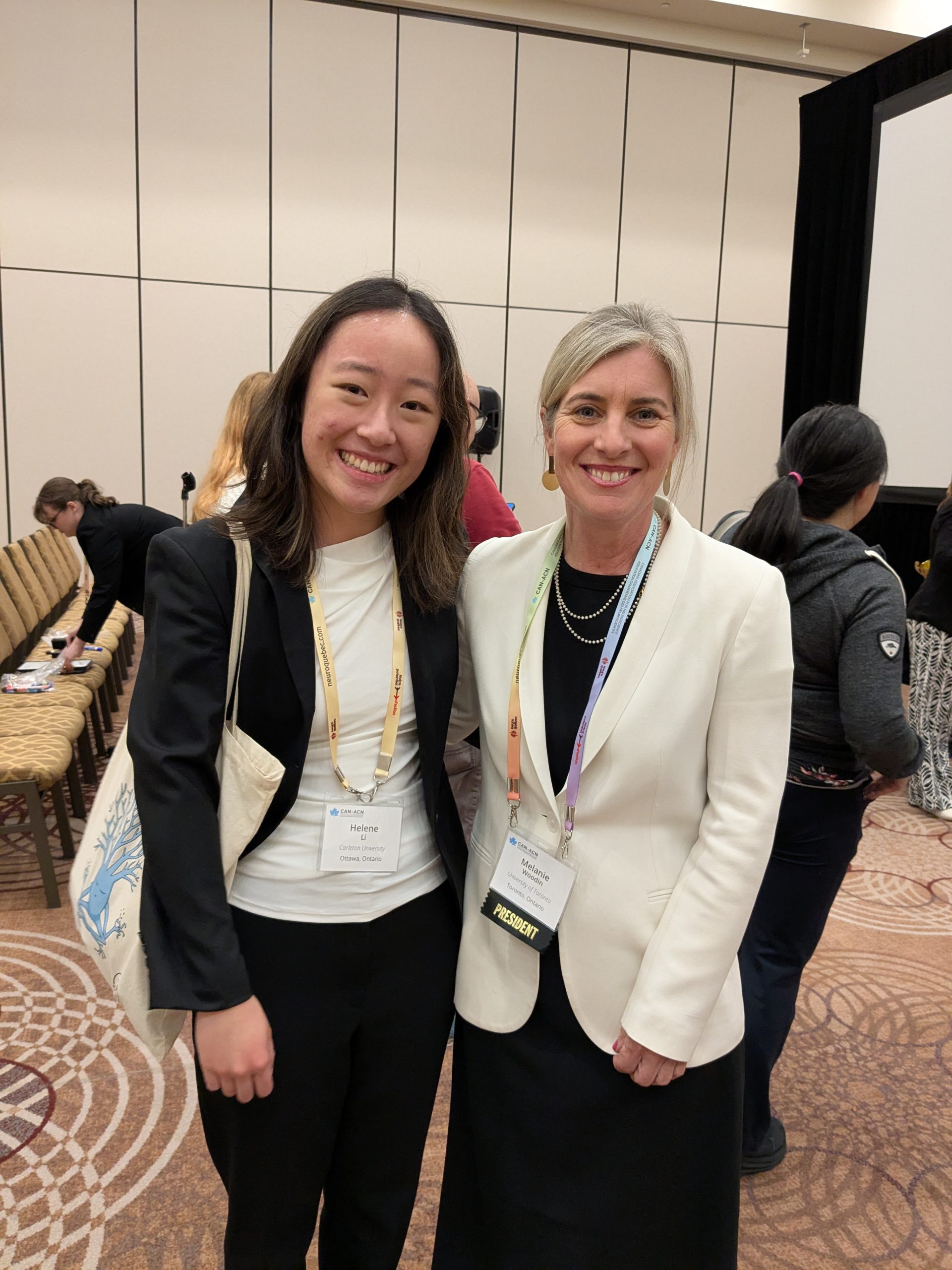Dear CAN members,
It is a distinct honour to represent you this year as the new President of the Canadian Association for Neuroscience. I am a long time member of this association and look forward to furthering CAN’s mission to bring together neuroscientists of all areas and to promote neuroscience research in Canada.
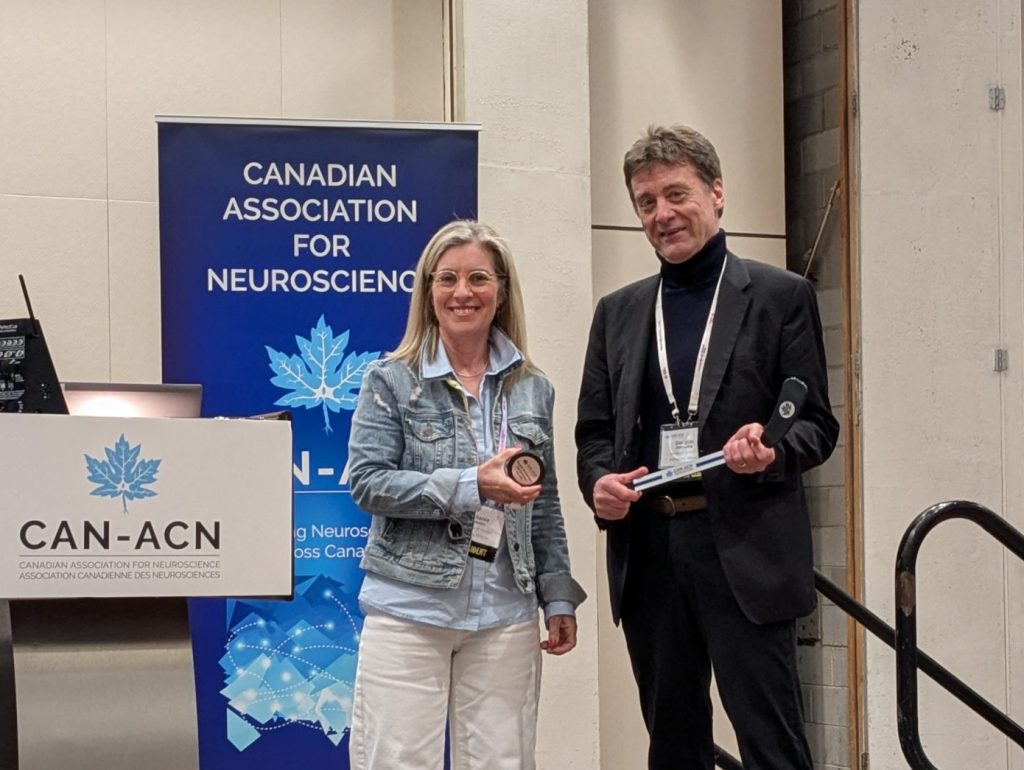
As a clinician scientist, I look forward to working to strengthen ties of the society with the clinical researchers. Research is more and more interdisciplinary today, and we have much to gain by joining together in a larger coalition to attain our common goals and objectives.
One of CAN important goals remains to advocate for neuroscience research in Canada, and specifically for stable, predictable and sufficient funding to support our research ecosystem. With the changing political landscape, and shifting governmental priorities, it is important to remind governments and decision-maker about the important contributions we can make to strengthening Canada’s economy, providing training and jobs, building Canada’s leadership in the world and helping Canadians lead healthy and productive lives.
A concept that is gaining attention is that of building a Brain Economy, where Brain Health and Brain Skills are recognized as key drivers of the modern economy. Canada is in an advantageous position to lead in this matter, so our advocacy efforts matter. For this reason, I was happy to participate in the G7 Canada Brain Economy Summit, which took place June 14, in Calgary. I invite you to read the Canada Brain Economy Declaration, which articulates the importance of supporting brain research in Canada to promote brain health.
I invite you to read about CAN’s recent advocacy initiatives, and plans for the coming months in this newsletter.
As President, it is also my pleasure to welcome the newly elected members of the CAN executive and board of directors: Matt Hill (U Calgary) as Vice-President-elect, Robert Bonin (U Toronto) as Treasurer-elect, and Board members Arezu Jahani-Asl (U Ottawa) and Craig Moore (Memorial U).
I wish you a great Summer, and look forward to engaging with CAN members throughout the year.
Douglas Zochodne, President of the Canadian Association for Neuroscience
Election results & New Board members
We are very proud to welcome the following new members of the CAN Board of Directors, starting June 1, 2025:
- Rob Bonin, Treasurer-elect
- Craig Moore, Board member
- Arezu Jahani-Asl, Board member
and the next President-elect, Matt Hill, who will take office at Vice-President on June 1, 2026.
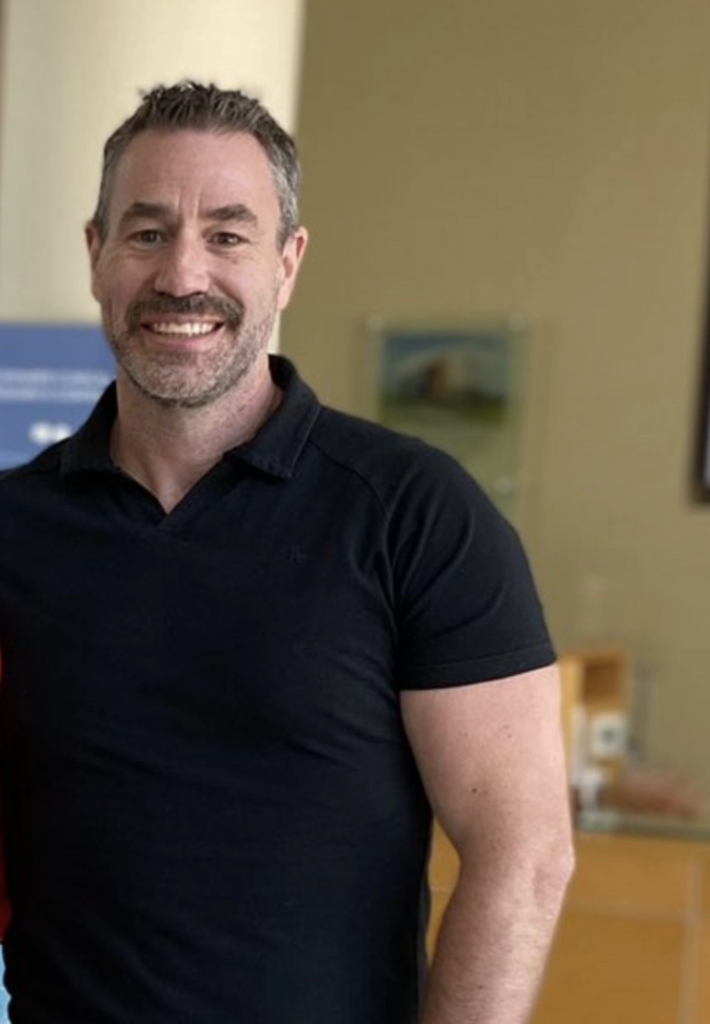

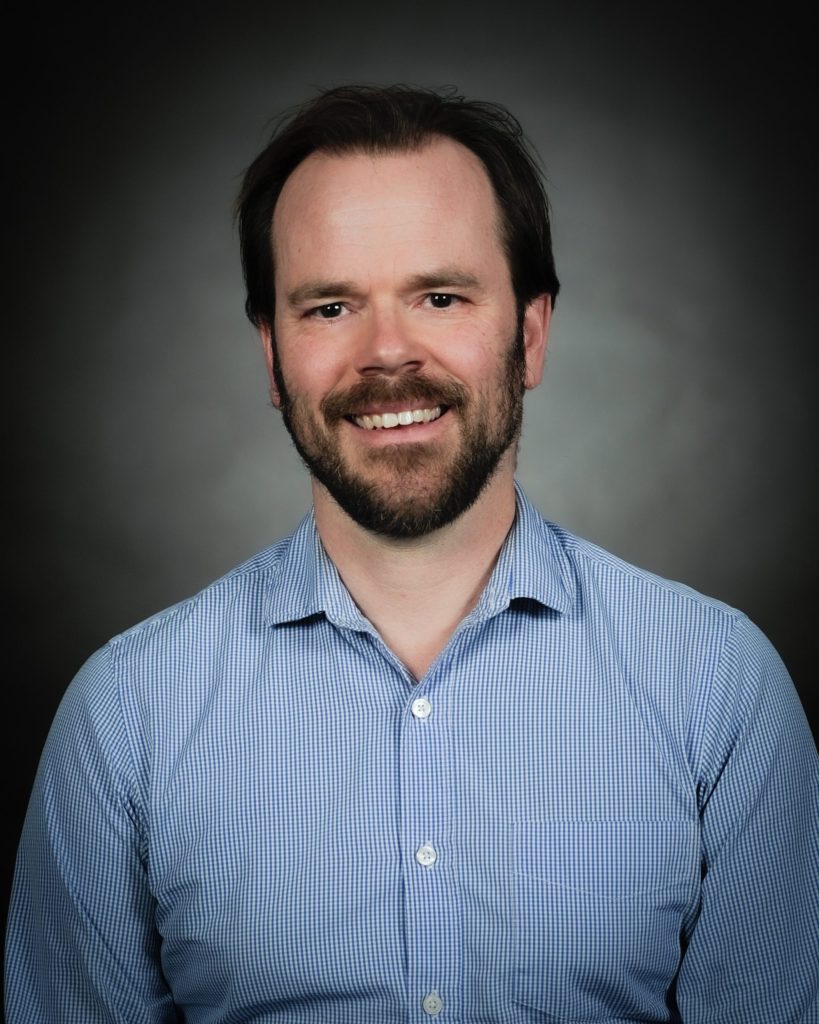
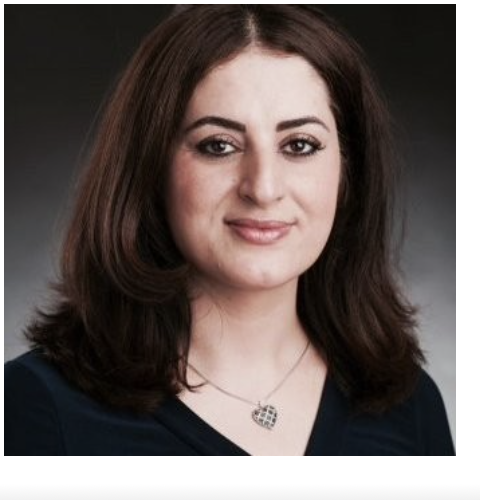
View the new CAN leadership team here.
CAN AGM
We held our Annual General Meeting of members in Toronto last month. View the 2025 AGM slide deck for an update on CAN’s activities.
2025 Meeting Highlights
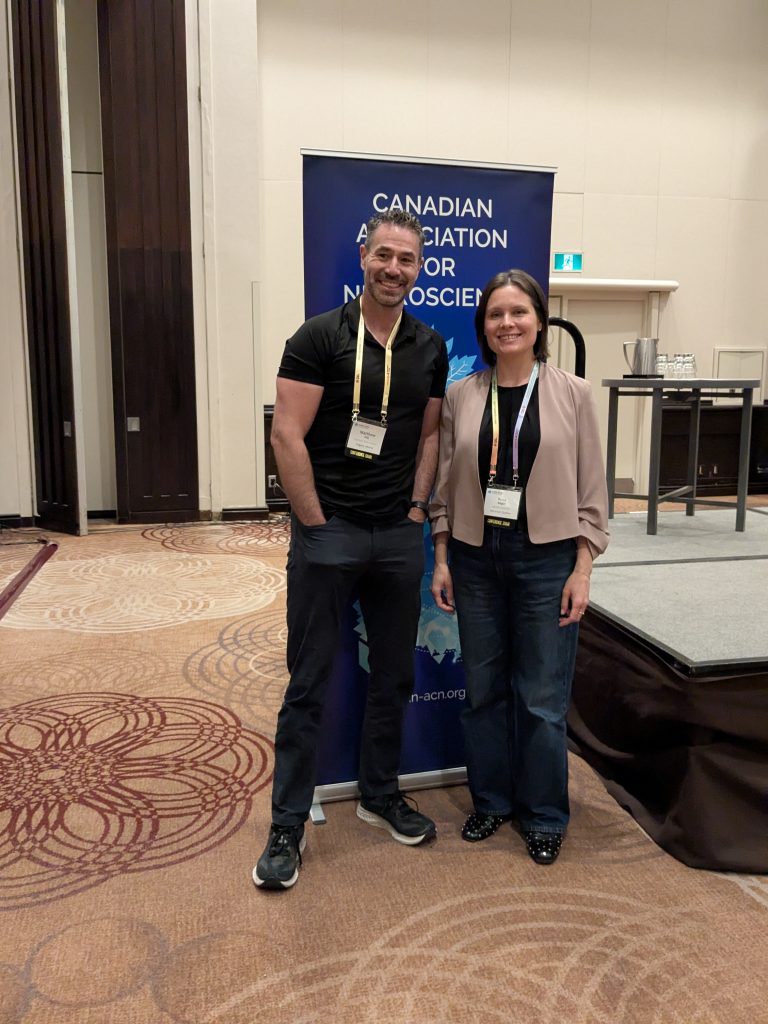
Congratulations to the CAN 2025 meeting chairs, Matt Hill and Rose Bagot on the great success of the meeting, and the excellent scientific program presented.
Public lectures
The Canadian Association for Neuroscience 2025 Public lectures, titled: Neuroscience of memory and tools for making our memories stronger took place May 20, 2025 at the Peter Gilgan Auditorium of the Sick Kids Research Institute. The event was co-organized with the Sick Kids Research Institute and sponsored by Brain Canada.
We wish to thank Julie Ruston, Program Manager, Neuroscience and Mental Health at the Sick Kids hospital and student volunteers Theresa Dudley, Tian Kong, Maria Gurma, Nhu Huynh and Lina Al Halabi, for helping to make this event a great success
The event was organized and hosted by Dr. Iva Zovkic, Associate Professor at the University of Toronto Mississauga and Canada Research Chair in Behavioural Epigenetics. It featured
- A welcome address by Stephen Scherer, PhD DSc FRSC, Chief of Research and Northbridge Chair in Paediatric Research at The Hospital for Sick Children (SickKids) and University of Toronto (UofT).
- A lecture by Sheena Josselyn, Ph.D. Senior Scientist at The Hospital for Sick Children (SickKids) and Professor in the departments of Psychology and Physiology at the University of Toronto in Canada: What can we learn by studying memory in mice?
- A lecture by Morgan Barense, Ph.D. Professor in the Department of Psychology at the University of Toronto and Senior Scientist at the Rotman Research Institute at Baycrest Hospital: Can we make our memories last longer?
Congratulations to Iva Zovkic for bringing together these excellent speakers, who gave engaging and entertaining presentations.
We wish to thank Brain Canada for sponsoring the event.
More details on the event webpage.
Award winners
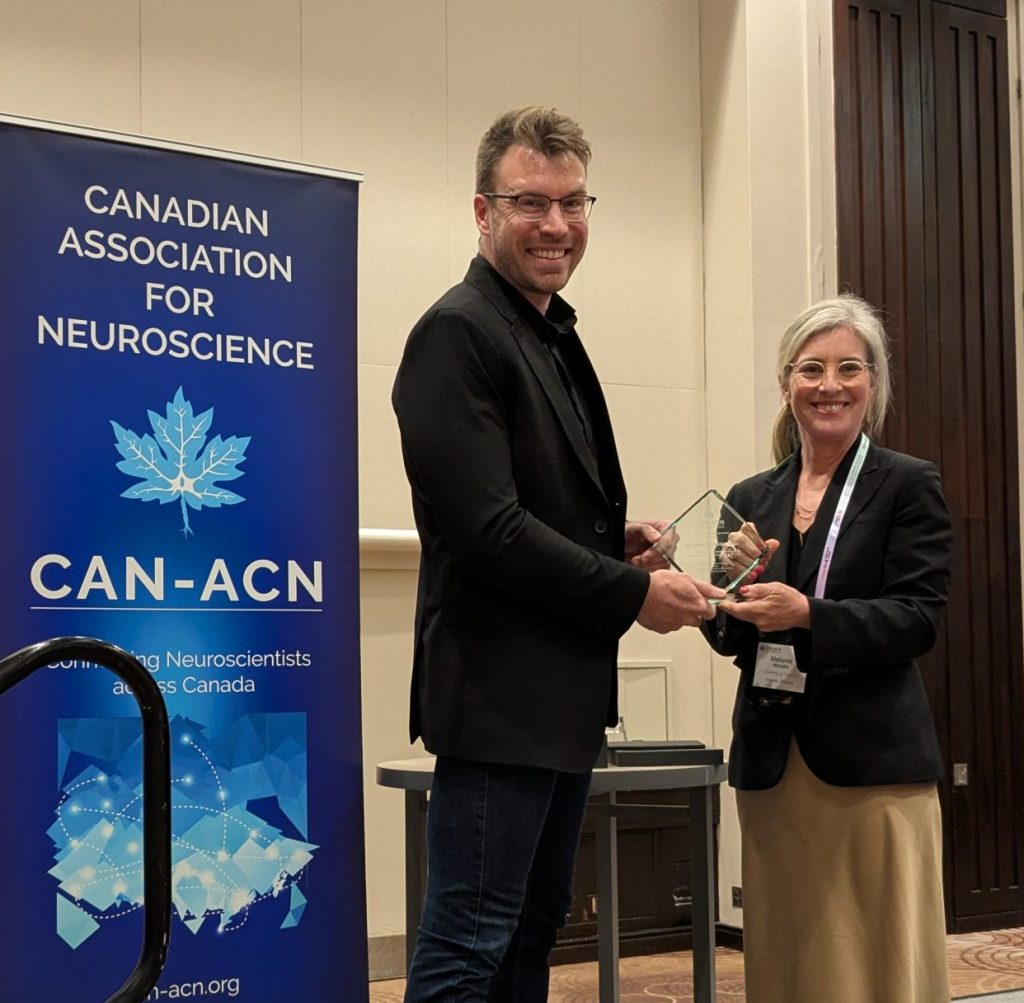
2025 CAN New Investigator Award
Mark Cembrowski receives the 2025 CAN New Investigator Award for multidisciplinary research that has transformed our understanding of how memory is represented in the brain
Top three Brain Star Award Winners
CAN was thrilled to hold once again the CIHR INMHA supported Brain Star Award competition for publications published in 2024, and to host short talks by the top three award winners.
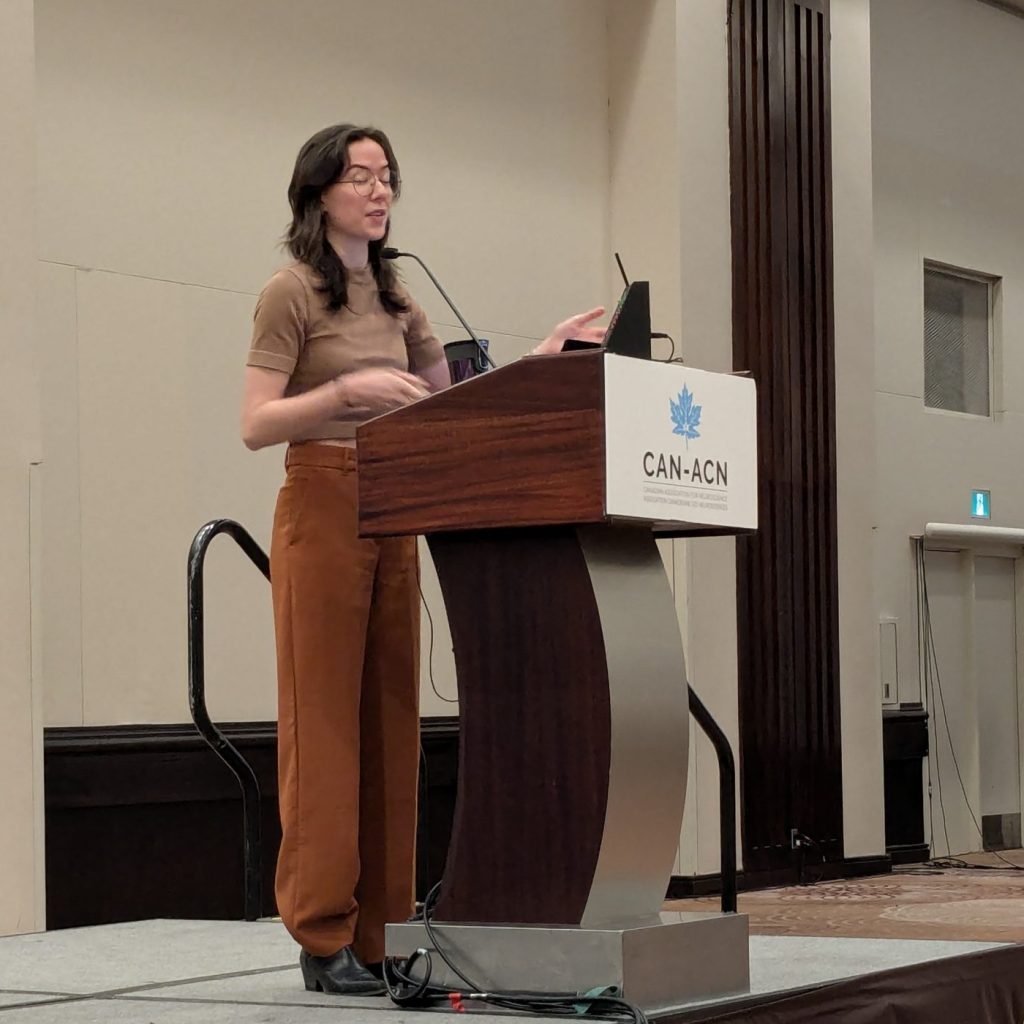
Justine Hansen – McGill University
Studying how the deepest regions of the brain contribute to brain activity
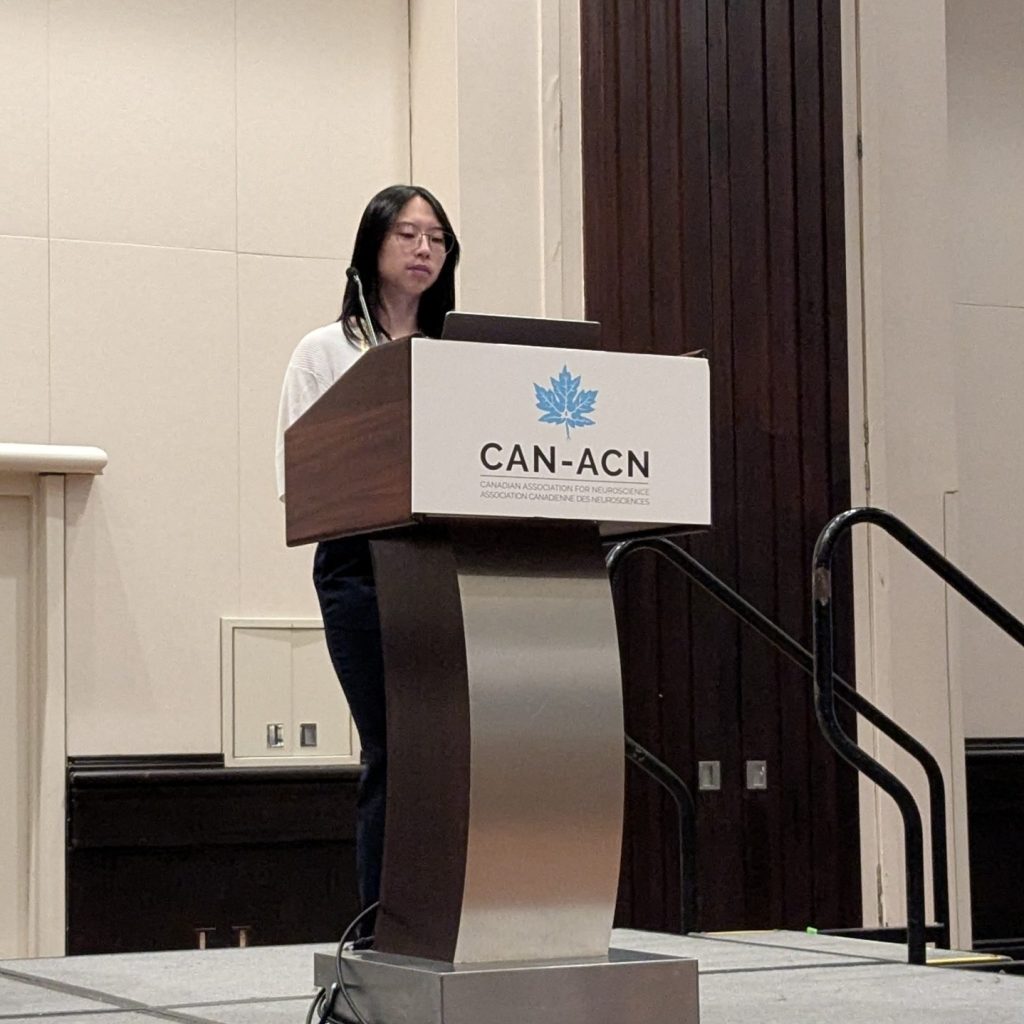
Christina You Chien Chou – McGill University
An optomapping approach to better understand connections in the visual cortex of the brain
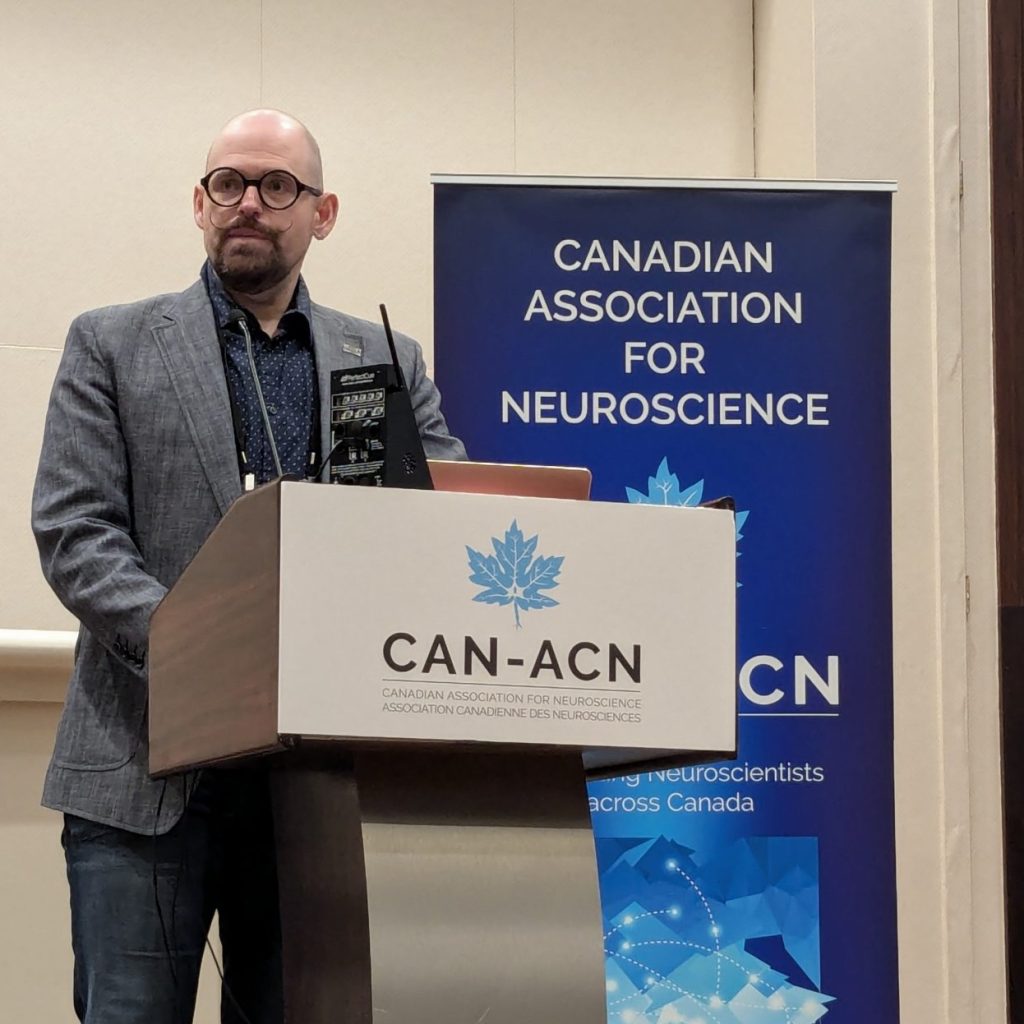
Sergio Crespo-Garcia – Université de Montréal
Discovery of a new therapeutic avenue to protect vision in diabetic patients.
We will be featuring each of the 15 Brain Star award winners on our website and social media accounts over the coming weeks. A new post will go out each week. We invite you to share these posts widely.
Winners of Travel and Professional development awards
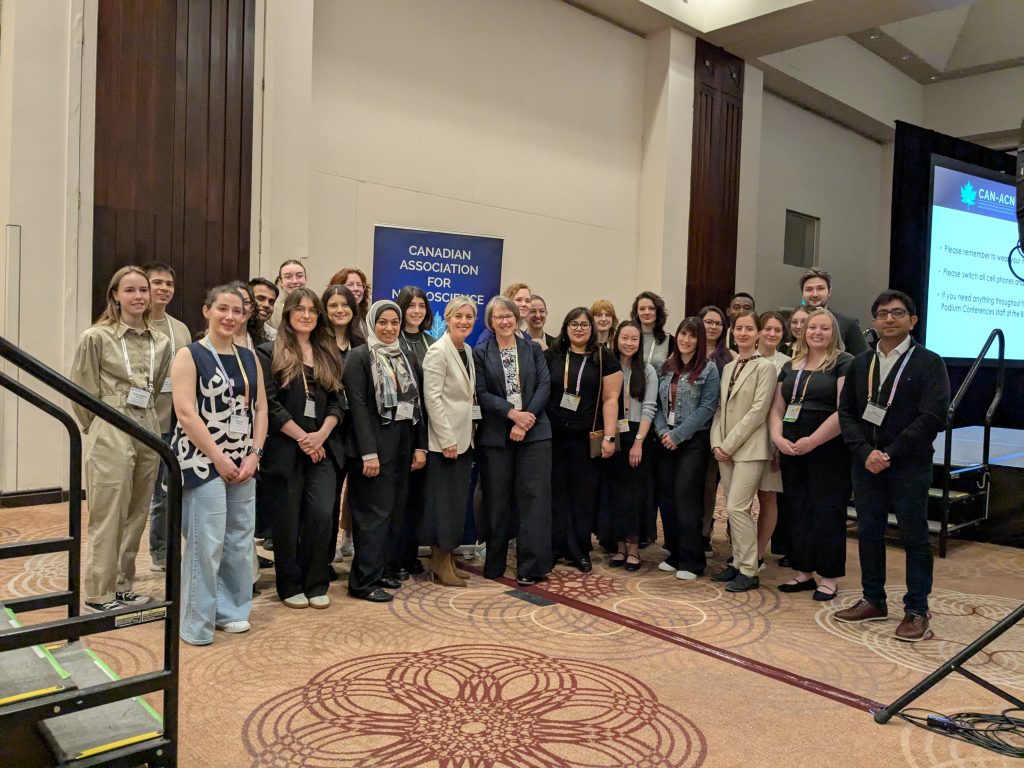
We are also incredibly grateful for the continued support of IBRO to promote the participation of trainees from underrepresented groups to our meeting.
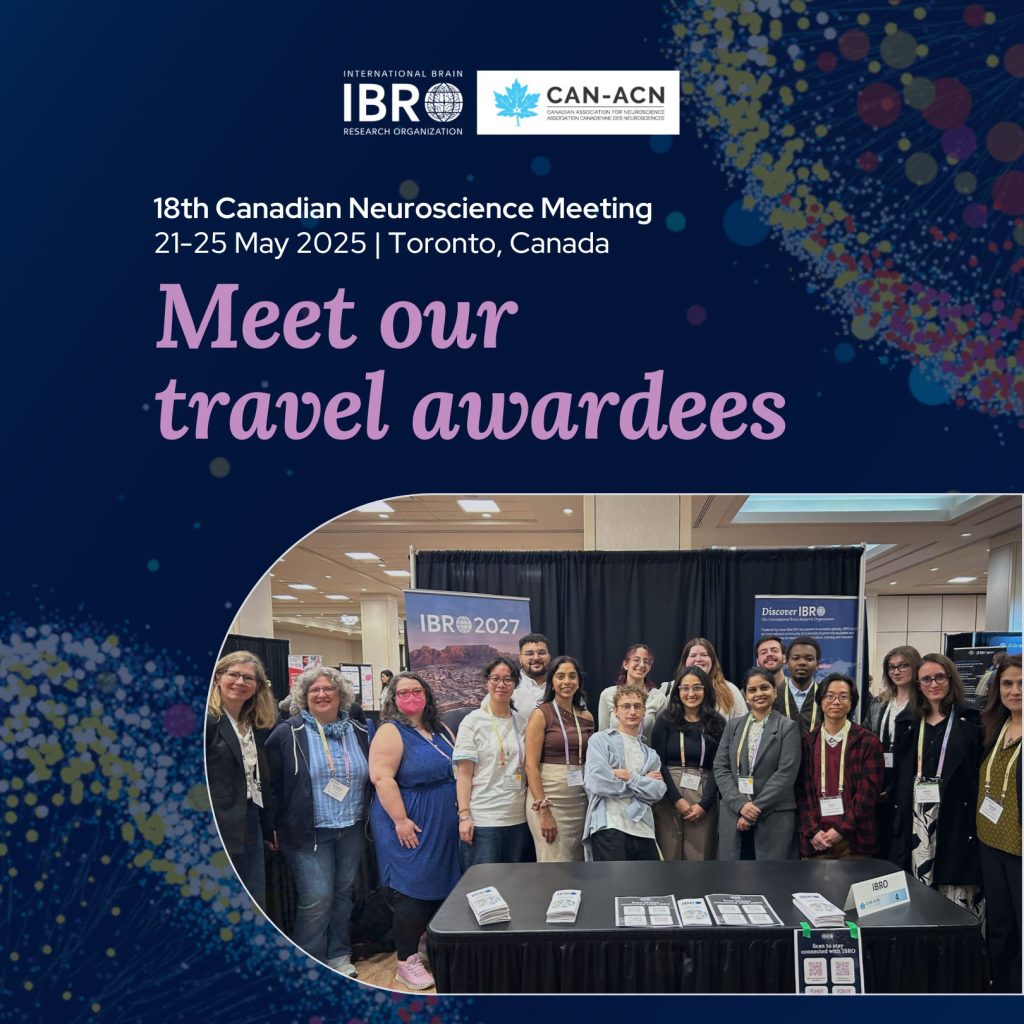
View the full list of travel and professional development awards here
Congratulations to all award winners!
CAN Meeting EDI Session: Economic barriers to trainee achievement, retention and funding opportunities
This event was organized by the CAN Equity, Diversity and Inclusion committee chairs Jenn Murray and Derya Sargin and hosted and moderated by Dr. Paul Sheppard (postdoctoral fellow, UWestern) and Dr. Olivia Reshmi Ghosh-Swaby (Postdoctoral fellow, UWestern).
It started with a presentation by Support Our Science Representative Shalini Iyer, and was followed by a panel discussion about economic barriers trainees face today.
We are grateful for the open discussion and shared perspectives from all panelists
- Dr. Sam Weiss, Professor at UCalgary, Scientific Director of the CIHR Institute of Neurosciences, Mental Health and Addiction
- Dr. Sarah MacFarlane, Professor at UCalgary,Director of the REALISE Career Development Program
- Dr. Maithe Arruda-Carvalho, Associate Professsor at UofT, mid-career researcher
- Dr. Annemarie Dedek, Assistant Professor at University of Waterloo, early-career researcher
- Dr. Haley Vecchiarelli, Postdoctoral fellow (Trembley lab, UVic)
- Adiia Stone, CGSD-holding PhD student, (Murray lab, UGuelph)
We are also grateful to IBRO, the International Brain Research Organization, for sponsoring this important event.
Career networking event
Congratulation to the organizers of the 2025 Career networking event Anne Wheeler & Ciaran Murphy-Royal for bringing together a great roster of neuroscientists following multiple career paths. We also want to thank all the panelists for their generosity and the trainee participants for their engagement.
Trainee Power Pitch Session
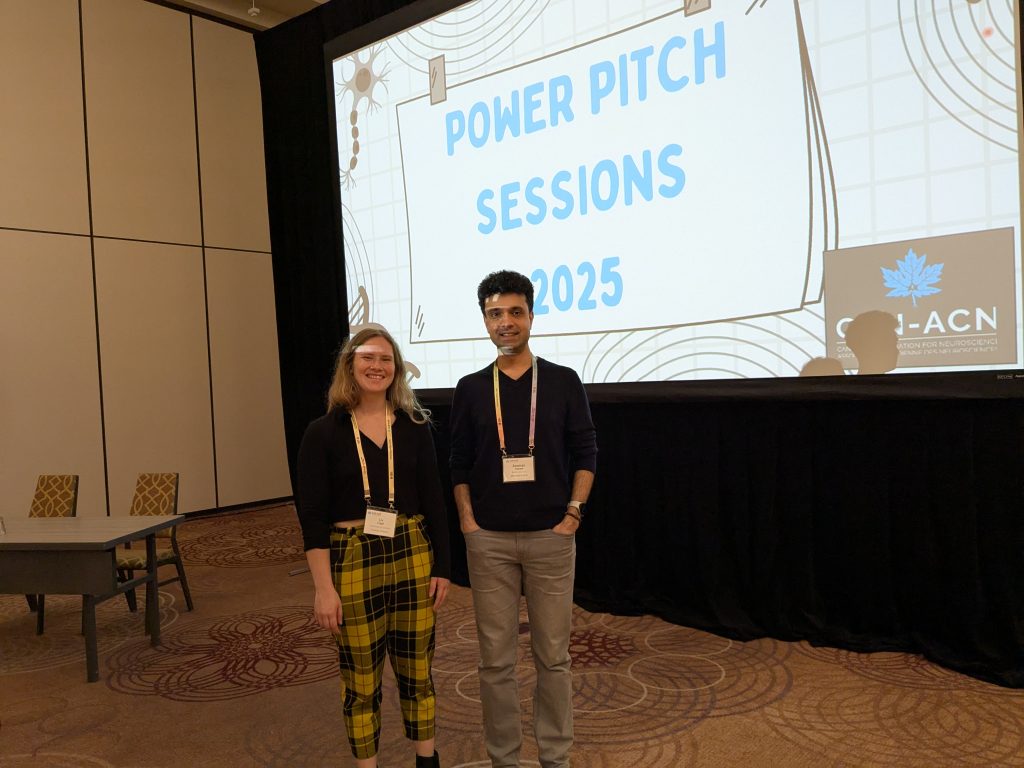
The Canadian National Brain Bee Showdown
CAN was very proud to host the Canadian National Brain Bee Showdown for the second year. The top 3 competitors from the first phase won travel and accommodation to compete in the second phase of the Canadian National: the Final Showdown, which was held in person at the 2025 Canadian Association for Neurosciences annual meeting in Toronto on Friday, May 23rd.
Congratulations to Emma Rees, Ottawa Brain Bee (first place), Maxwell Li, Toronto Brain Bee (second place), and Diyaa James Hamsaveni, Guelph Brain Bee (third place), winners of the 2025 CIHR Canadian National Brain Bee! Emma will go on to represent Canada in the International Brain Bee in November!
From the Canadian Brain Bee website
The Canadian National Brain Bee is a neuroscience competition for high school students, grades 9 through 12. Students study brain and neuroscience research topics including memory, sleep, intelligence, emotion, perception, stress, aging, brain imaging, neurology, neurotransmitters, genetics, brain disease, and more. To compete in the Canadian National, students must first compete in a regional brain bee competition in Canada. The top place winner of each official regional brain bee will advance to the Canadian National level of competition. Finally, the top place champion of the Canadian National Brain Bee will advance to the next level of competition: the International Brain Bee.
Interested in organizing a local brain bee in your city? Get more information on the Brain Bee website: https://brainbee.ca/organizers/how-to-start-your-own-local-brain-bee
Advocacy
CAN continues its mission to advocate for increased funding for scientific research in Canada.
Advocacy webinar – Bridging Science and Policy: Tools for Effective Advocacy
This event, hosted on April 9th by CAN and Evidence for Democracy (E4D), was an engaging and interactive workshop titled “Bridging Science and Policy: Tools for Effective Advocacy.” This session was designed to equip scientists and researchers with the knowledge and skills to become effective advocates for science.
If you did not have the chance to join us live, we have made the recording available on our website
CAN Federal election one-pager
We invite you to (re)read the CAN election one-pager and to use this as you meet newly elected Members of Parliament and other decision-maker to emphasize the importance of science and research for all Canadians.
Advocacy session at the CAN meeting
The CAN advocacy committee hosted a session titled: Navigating Regulatory Frameworks for Research Models in Canada, on May 22 in Toronto. The session was hosted by the committee co-chairs Tabrez Siddiqui and Liisa Galea.
It was an opportunity to learn more from panelists, Dr. Pierre Verreault (Director of the Canadian Council on Animal Care -CCAC https://ccac.ca/), Vince Tropepe (Professor and Vice-Presidential Advisor on Research Oversight and Compliance, University of Toronto) and Jean-François Cloutier (Professor at McGill University and at The Neuro, and a Director at the Canadian Council on Animal Care) about the regulatory framework supporting animal research in Canada.
Some of the take home messages include:
- The principles of the 3Rs (Replacement, Reduction and Refinement) provides a framework for performing more humane animal research and making better science. The Three Rs have become widely accepted ethical decision-making principles and are now embedded in the conduct of animal-based science in Canada and internationally. https://ccac.ca/en/three-rs/
- Being open and proactive to share the importance of animal research, done in an ethical way, is important for public trust. The animal use report is the most consulted page on the CCAC website.
- The best way for researchers to better understand and affect change to animal use regulations and reporting is to get involved in animal care committees at their institution or with the CCAC.
- Communication and consultation are key to building the partnerships necessary to maintaining Canada’s reputation as an innovative and ethically responsible leader in the field.
CAN Commitment to Equity, Diversity, and Inclusion
We invite you to read our recent statement:
May – 2025
This is an important time to reiterate the commitment of the Canadian Association for Neuroscience (CAN) to the values and principles of Equity, Diversity, and Inclusion. These are core values for CAN and they must inform research design and dissemination, and support for all researchers.
As a scientific society, we affirm that systematic barriers exist and that they place undue burden on the success of the marginalized, including Indigenous and racialized individuals, those with disabilities, the LGBQ+ community, non-binary and transgender people, and the intersectionality across these identities. CAN continues its commitment to work toward breaking down barriers and policies that impede the success for these people and others, including factors based on immigration status, family responsibilities, and generational status in education.
Furthermore, CAN continues its support for the inclusion of related such factors in experimental design, including sex as a biological variable with sex operationally defined, at all levels of study, from single cell microbiology through behaviour and in incorporating the spectrum of gender in studies involving human participants.
Science is strengthened by these principles and upholding them helps build a more resilient, inclusive, and sustainable future for all.
Read the Canada Brain Economy Declaration
CAN President Doug Zochodne participated in the G7 Canada Brain Economy Summit on June 14, 2025, in Calgary, Alberta. The event brought together together senior leaders from government, business, research, and civil society to shape a shared vision for inclusive, brain-centered progress. In advance of this meeting, the Canadian Brain Research Strategy published the Canada Brain Economy Declaration:
About the Canada Brain Economy Declaration
The Canada Brain Economy Declaration represents the culmination of a months-long effort that brought together more than 100 senior global leaders from government, business, research, and civil society through a series of roundtables, consultations, and convenings aligned with the 2025 G7 Leaders’ Summit.The effort was convened by the Alzheimer’s Society of Montreal, Canadian Brain Research Strategy, Centre for Aging + Brain Health Innovation, Davos Alzheimer’s Collaborative, European Brain Council, Hotchkiss Brain Institute, Ontario Brain Institute, Rice University, and the University of Calgary.
The Declaration is available on The Canadian Brain Research Strategy website
Opportunities & Resources
Brain Prize nominations
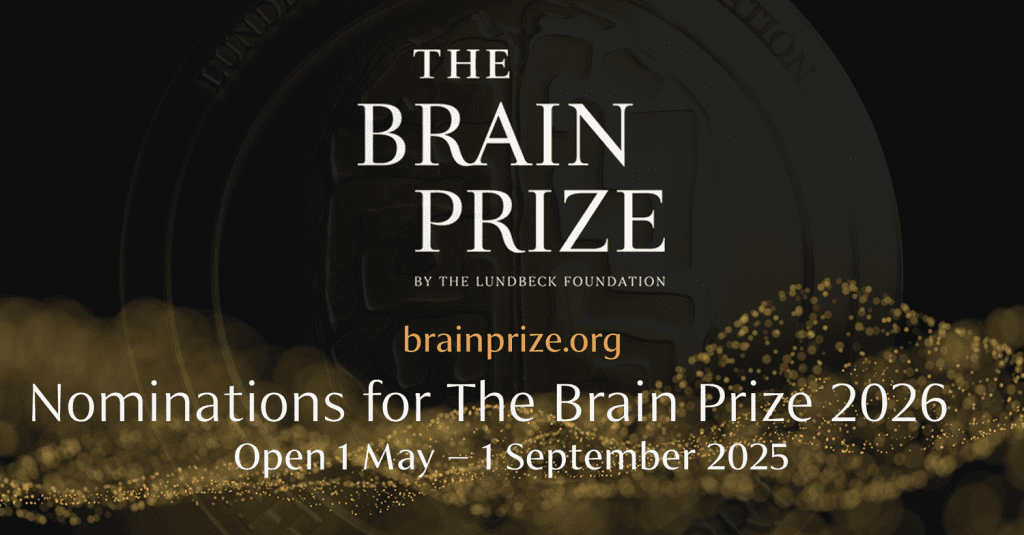
The Brain Prize is currently the world’s largest prize for neuroscience and is awarded each year by the Lundbeck Foundation. The Brain Prize is awarded to one or more individuals who have distinguished themselves by making outstanding contributions in any area of neuroscience- from basic to clinical, and since it was first awarded in 2011 The Brain Prize has recognised 47 scientists from 10 different countries. You can find out more about The Brain Prize here.
Neurojobs
View recently posted advertisements on our website: https://can-acn.org/neurojobs/
- Assistant or associate professor-researcher in Neuroscience related to neurological disorders and/or neural regeneration and precision health – Université de Montréal 2025/06/19
- Director of the Neuro (Montreal Neurological Institute Hospital) 2025/06/17
- Post-doctoral position in Neural Stem Cells – University of Ottawa 2025/06/05
- Assistant or Associate Professor (tenure-track type) in Addiction and Mental Health 2025/06/04
- Assistant/Associate Professor (Research), Single Cell Genomics, Department of Psychiatry (2 positions) – McGill University 2025/06/03
- Assistant Professor (Research), Department of Psychiatry, Artificial Intelligence in Psychiatry, McGill University 2025/06/03
- Postdoctoral position available in the Breton-Provencher Lab at Université Laval to study neuromodulatory systems and foraging behavior 2025/05/28
- Senior Scientist I (Peter Gilgan Chair in Neuroregeneration Research) – UHN 2025/05/14
- Research Assistant – University of Saskatchewan 2025/05/09
- MSc/PhD Position at the Faculty of Medicine, Memorial University of Newfoundland, St. John’s, Canada 2025/05/01
- Postdoctoral Research Position – Neuroimmunology & High-Throughput Immunometabolic Profiling in MS – Memorial University 2025/05/01
- Postdoc position available in the laboratory of Dr. Louis-Eric Trudeau at the University of Montreal to work on the regulation of dopamine release 2025/04/28
- Assistant Professor University of Saskatchewan-Department of Biochemistry, Microbiology and Immunology 2025/04/25
- PhD students- The Guo lab- Cilia in the Brain – University of Calgary 2025/04/25
- Assistant/Associate Professor (Research) in Computational Genomics, Department of Psychiatry – McGill University 2025/04/17
- The Guo lab PDF-Cilia, underappreciated signaling hubs in the brain 2025/04/07
- Post-doctoral Position in Neuroscience: Lohman and Nguyen Labs at UCalgary 2025/03/25
- Electroneurophysiology Technologist I / Neurophysiologist 2025/03/14
- Neurologist (General & Stroke Specialist) – Fraser Health: Abbotsford Regional Hospital and Cancer Centre 2025/03/13
CAN members can submit advertisements for free
Renew your membership or become a member today!
If you have not already done so, we invite you to renew your annual membership or become a member of the Canadian Association for Neuroscience. Your membership helps support our activities which aim to promote neuroscience research and advocate for increased funding for research in Canada.
CAN continuously strives for the betterment of the Canadian Neuroscience community by:
- Advocating for increased funding for basic research in Canada (https://can-acn.org/advocacy/) and supporting grass-roots advocacy initiatives
- Promoting Canadian neuroscientists and neuroscience research, through awards, our website and social media
- Strengthening the Canadian neuroscience community by providing opportunities to connect and network
- Supporting Equity, Diversity and Inclusion in Neuroscience in Canada, through the efforts of the CAN-EDI committee, and by supporting grass-roots actions proposed by neuroscientists (https://can-acn.org/equity-diversity-and-inclusivity-in-neuroscience/)
- Developing partnerships to help us achieve our goals – Examples include a Memorandum of Understanding with the Society for Neuroscience, which provides significant funds for advocacy in Canada; with CIHR-INMHA to manage the Brain Star awards; with IBRO and BrightFocus to support participation of underrepresented groups in the CAN meeting through Travel award attribution.
Your membership helps support these initiatives and many more. To learn more about us and the benefits of being a CAN member, please visit: https://can-acn.org/become-a-member/
CAN membership is open to all scientists, principal investigators and students actively involved in neuroscience research from across Canada and around the world. CAN membership dues are paid annually and cover the calendar year from September 1st to August 31st.
We hope we can count on your participation and support this year!
Save the dates – Upcoming Canadian Neuroscience Meetings
May 18-21, 2026 in Montreal
June 6-9, 2027 in Calgary

2026 Canadian Neuroscience Meeting
May 18-21, 2026
Hotel Bonaventure Montréal

2027 Canadian Neuroscience Meeting
June 6 – 9, 2027
Calgary Telus Convention Centre

